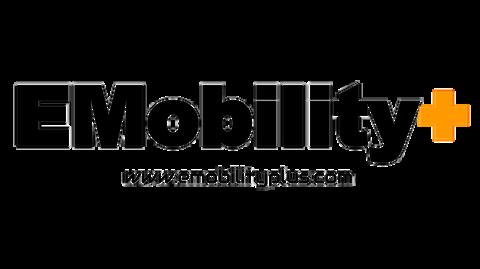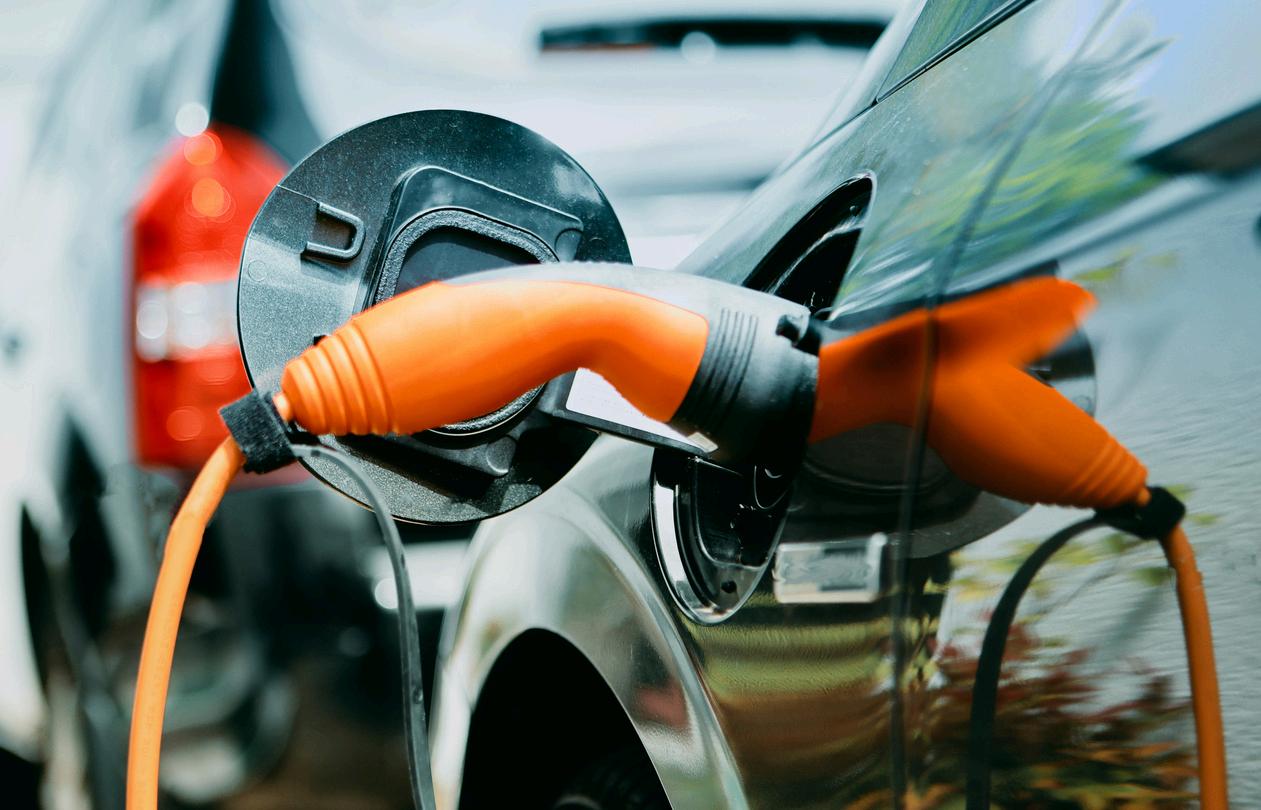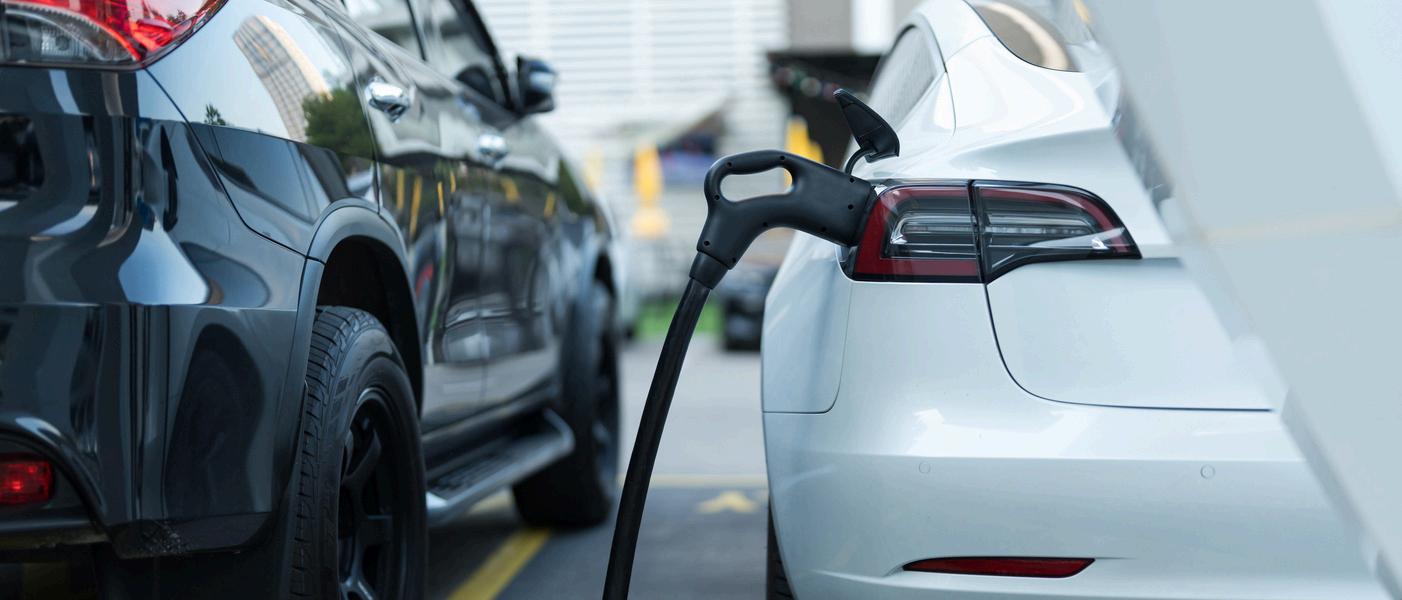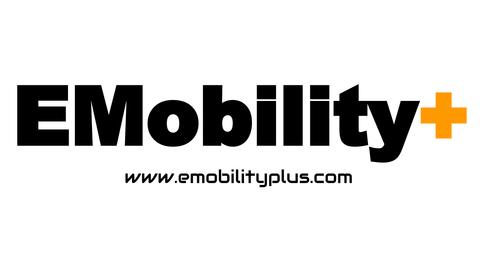
















































Electric vehicles are more than a technological breakthrough they represent a transformative force for global economies.
Companies that invest in battery innovation, charging networks, and clean energy solutions today are poised to unlock new revenue streams, create jobs, and lead the next industrial revolution.”

Pickkup Secures $500K In Seed Funding To Expand Electric Fleet And Enhance Logistics Efficiency
Chandigarh-based logistics solutions provider Pickkup has raised $500,000 in a Seed Round led by We Founder Circle (WFC), with participation from investors including Neeraj Tyagi, Gaurav Singhvi, and Vikas Aggarwal, alongside other angel investors from India, Australia, and the USA The funding will be utilized to expand Pickkup’s electric vehicle (EV) fleet, strengthen its team, and invest in advanced logistics technology The company aims to enhance fleet utilization and operational efficiency while minimizing environmental impact
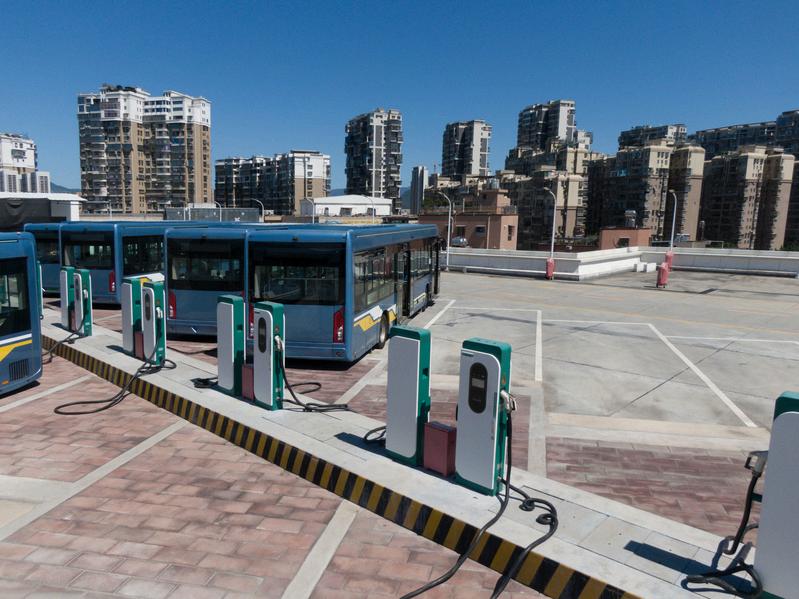
JBM Ecolife Secures ₹5,500 Crore Order For 1,021 Electric Buses Under PM e-Bus Sewa Scheme
JBM Ecolife Mobility Pvt Ltd, a subsidiary of JBM Auto Limited, has won a major contract to supply 1,021 electric buses under the Government of India’s PM e-Bus Sewa Scheme-2 initiative The buses will be deployed across Gujarat, Maharashtra, and Haryana Under this tender, JBM Ecolife Mobility will handle the end-to-end execution of the project, backed by a Payment Security Mechanism (PSM) to ensure timely payments to electric bus operators Over their 12-year deployment, these ebuses are expected to clock over 32 billion passengerkilometers and reduce carbon emissions by more than 1 billion metric tons
Oben Electric Secures ₹50 Crore In Series A Funding To Bolster Expansion Plans
Euler Motors Raises $20 Million In Debt Funding To Accelerate EV Production And Expansion
Euler Motors has secured up to USD 20 million in debt funding from responsAbility Investments AG, an impact asset manager specializing in private market investments This funding will be used to scale production and drive advanced research and development for next-generation electric vehicle (EV) technology The investment is expected to support the growth of Euler Motors’ newly launched Storm EV, the company’s flagship four-wheeler designed specifically for logistics and e-commerce clients.

Oben Electric has raised ₹50 crore (approximately $6 million) in its Series A funding round. The funding was spearheaded by Ambis Holding US, Kuberan Ventures, Karimjee Group, and Mission Vertical, along with participation from the Sanjeev Saraf (Polyplex) Family Office, Pravek Kalp Family Office, and existing investors The funds will drive the company’s ambitious expansion plans, targeting over 100 showrooms and Oben Care service centers across 50 Indian cities by FY26

Mufin Green Secures $18 Million DFC Loan To Power India’s EV And Renewable Energy Transition
Mufin Green Finance, a financier in the electric vehicle (EV) ecosystem, has secured an $18 million loan from the United States International Development Finance Corporation (DFC) The 10-year loan will bolster the company’s efforts to finance EVs, chargers, and batteries, furthering its commitment to advancing India’s electric mobility sector.
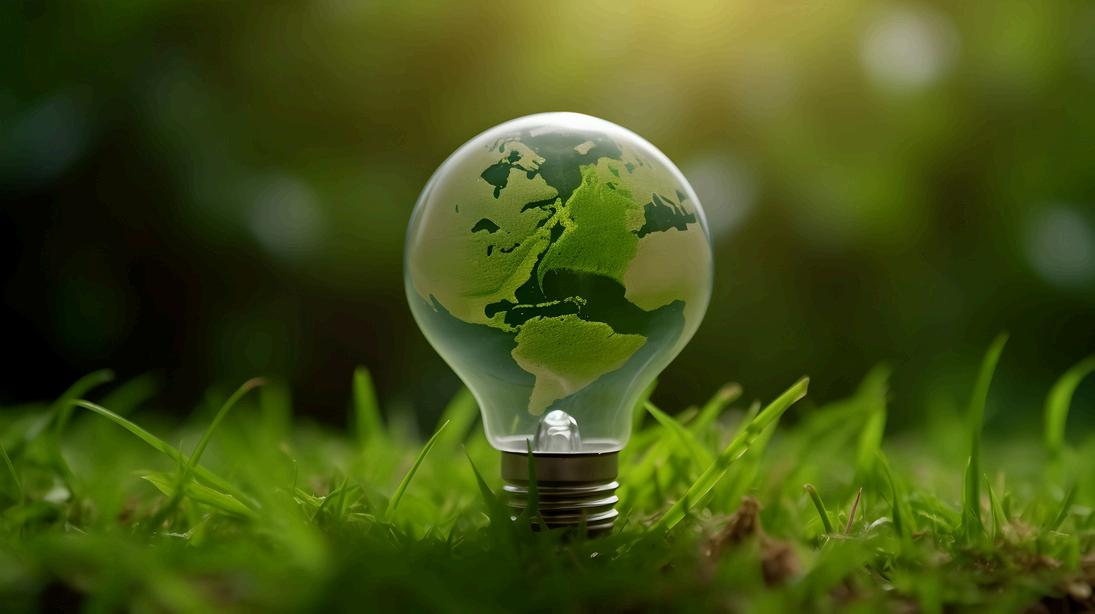


PMI Electro Mobility Solutions Pvt Ltd , a manufacturer of electric buses in India, has raised ₹250 crore in strategic investment from a consortium led by Authum Investment & Infrastructure Limited, Antique Securities, and highnet-worth individuals (HNI) family offices, along with Nikhil Kamath-backed Gruhas. The investment, secured through a preferential allotment of equity shares, underscores growing investor confidence in PMI’s vision and its role in shaping the future of sustainable transportation in India
Urja Mobility, a leading startup in EV battery leasing solutions, has announced a strategic partnership with Sieger Technologies, a pioneer in innovative battery systems This landmark collaboration includes a $1 million investment by Urja Mobility to deploy 2,500 state-of-the-art batteries, marking a significant leap toward sustainable electric transportation in India The partnership aims to make electric mobility more accessible by addressing the high upfront costs of batteries, a major barrier for commercial EV operators Urja Mobility’s flexible leasing model will allow businesses to lease high-performance Lithium-Ion batteries, converting hefty purchase prices into manageable monthly payments.
The Rajasthan government has launched a ₹200 crore EV subsidy program to promote electric mobility, reduce pollution, and enhance EV infrastructure Incentives range from ₹4,000 to ₹5,00,000 for different vehicle categories, with SGST reimbursements for advanced battery EVs Subsidies are credited directly to buyers’ bank accounts upon verification. Eligible vehicles must be purchased in Rajasthan after September 1, 2022 The initiative aims to increase EV adoption, improve air quality, expand charging infrastructure, attract investments, and create jobs, accelerating Rajasthan’s transition to a greener and more sustainable transportation system
Tata Motors Passenger Vehicles (TMPV) and Tata Passenger Electric Mobility (TPEM), subsidiaries of Tata Motors Ltd., have signed a Memorandum of Understanding (MoU) with Saraswat Bank, one of India’s largest cooperative banks This partnership aims to provide customized auto retail financing solutions for customers purchasing Tata Motors’ internal combustion engine (ICE) and electric vehicles (EV) The agreement was formalized in the presence of senior leadership from both organizations and is expected to enhance affordability and convenience for buyers by offering competitive interest rates.
As of February 8, 2025, the e-Vahan portal reports 56.75 lakh registered electric vehicles in India out of 3,897 71 lakh total vehicles The PM E-DRIVE scheme promotes EV adoption by providing subsidies and incentives for electric two- and three-wheelers, particularly in rural and semi-urban areas To address charging concerns, ₹2,000 crore has been allocated for nationwide charging stations The scheme supports eco-friendly public transport, focusing on commercial EVs like e-trucks and three-wheelers, ensuring widespread adoption across Tier-2 and Tier-3 cities for a sustainable mobility transition.
The Ministry of Power has issued the “Guidelines for Installation and Operation of Battery Swapping and Battery Charging Stations – 2024” to promote EV adoption and battery swapping The guidelines support the Battery as a Service (BaaS) model, where third-party providers lease swappable batteries to users Battery swapping enables quick battery replacement at dedicated stations, while Battery-to-Grid (B2G) allows energy transfer back to the grid. The policy includes safety, infrastructure, and operational provisions It permits existing electricity connections for charging and encourages liquid-cooled swappable batteries for larger EVs, ensuring a seamless, efficient, and accessible battery-swapping ecosystem nationwide.
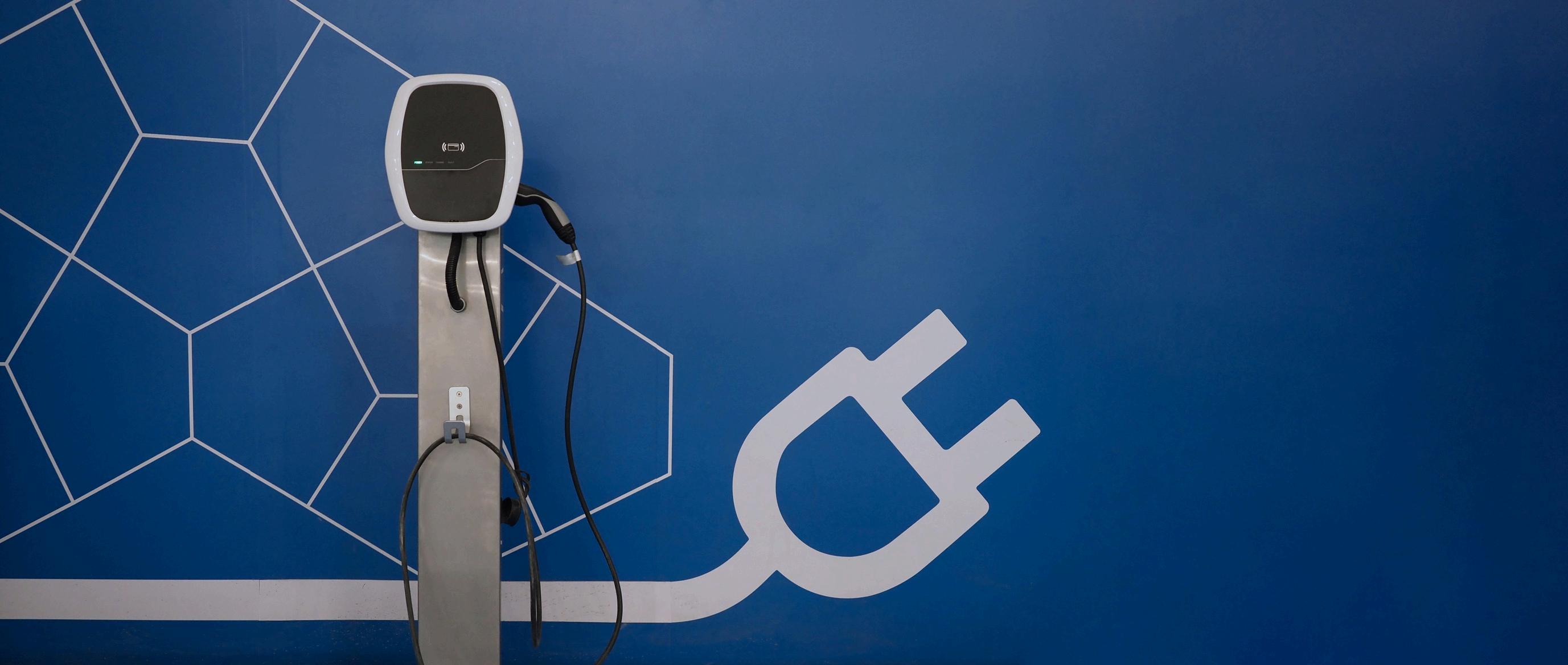

Revolutionizing Transport: India’s Push For Mass Adoption Of Electric Vehicles Through FAME-India
The FAME-India Scheme, launched in 2015, promotes electric mobility through demand incentives for EVs. Its second phase, FAME-II, introduced in 2019 with ₹11,500 crore, supports two-wheelers, three-wheelers, fourwheelers, electric buses, and charging stations
As of October 31, 2024, ₹8,844 crore has been utilized, incentivizing 16 15 lakh EVs and sanctioning 10,985 charging stations The scheme also includes a phased manufacturing program, GST reduction on EVs, and statespecific policies, driving India’s transition to sustainable, eco-friendly transportation and a robust EV ecosystem
FAME-II Scheme Incentivizes Over 16 Lakh Electric Vehicles, Supporting India’s Transition To Sustainable Mobility
The Government of India launched the FAMEIndia Scheme in 2015 to promote EV adoption, followed by FAME-II in 2019 with a ₹11,500 crore budget. As of October 31, 2024, ₹8,844 crore has been spent, incentivizing 16 15 lakh EVs, including 14 27 lakh e-2Ws, 1 59 lakh e3Ws, 22,548 e-4Ws, and 5,131 e-buses Additionally, 10,985 EV charging stations were sanctioned The scheme supports domestic manufacturing, reduced GST on EVs, and state EV policies By providing financial incentives and infrastructure support, FAME-II plays a crucial role in accelerating India’s shift toward sustainable, affordable, and eco-friendly transportation.
Madhya Pradesh Accelerates EV Adoption With Comprehensive Policy 2025
The Madhya Pradesh EV Policy 2025 aims to accelerate electric mobility by enhancing local manufacturing, expanding charging infrastructure, and offering financial incentives It targets 40% of new two-wheeler and 70% of three-wheeler registrations to be electric, alongside full EV adoption for government vehicles Subsidies up to ₹50,000, tax exemptions, and charging infrastructure incentives are included. The policy promotes EV manufacturing, battery recycling, and skill development, with subsidies for industries and employment incentives Public awareness campaigns and public transport electrification are also prioritized This comprehensive framework positions Madhya Pradesh as a leader in India’s EV transition

Godawari Electric Motors Partners With Shriram Finance To Boost EV Adoption In India
Godawari Electric Motors has announced a strategic partnership with Shriram Finance Ltd to offer exclusive financing solutions for electric two-wheelers and three-wheelers across India This collaboration, under the “Shriram Green Finance” initiative, aims to make electric vehicle ownership more affordable and accessible nationwide.
EKA Mobility Partners With KPIT Technologies To Develop Powertrain Components For Electric Buses
EKA Mobility has announced a strategic alliance with KPIT Technologies to innovate powertrain components for electric buses and commercial vehicles The collaboration aims to enhance energy efficiency and reduce ownership costs for electric vehicles The partnership will focus on utilizing the company’s comprehensive suite of locally developed electric powertrain technologies to drive innovation at EKA Mobility
Jitendra EV Partners With Battery Smart To Revolutionize Electric Vehicle Ecosystem
Jitendra New EV Tech Pvt Ltd , an electric twowheeler manufacturer in India, has announced a strategic partnership with Battery Smart, the largest and fastest-growing battery-swapping network for electric two- and three-wheelers in the country This collaboration aims to enhance the electric vehicle (EV) ecosystem by integrating Battery Smart’s state-of-the-art battery-swapping technology into Jitendra EV’s fleet, offering users the ability to swap depleted batteries for fully charged ones in under two minutes
CESL’S 'EV AS A SERVICE' PROGRAM IS NOT JUST ABOUT GOVERNMENT FLEETS; IT’S ABOUT ACCELERATING INDIA’S JOURNEY TO CLEAN ENERGY LEADERSHIP.
PURE EV Partners with BE Energy to Develop Advanced Lithium-Ion Battery Reconditioning Technology
Hyderabad-based PURE EV has partnered with BE Energy, a French climate-tech firm, to develop advanced lithium-ion battery reconditioning technology This collaboration aims to reduce costs for electric vehicle (EV) owners by reconditioning existing batteries, and prolonging their life BE Energy’s patented reconditioning equipment will be combined with PURE EV’s BatricsFaraday technology This initiative supports the decarbonization of electric mobility in India and marks BE Energy’s entry into the Indian market The first facility under the partnership will be established in Hyderabad in the next fiscal year, aligning with India’s Make in India initiative
Refex Green Mobility Partners With Gensol To Strengthen Electric Mobility With 2,997 EV Transfer

Refex Green Mobility has partnered with Gensol Engineering Limited to acquire 2,997 electric four-wheelers (e4Ws), marking a significant step toward sustainable mobility in India The deal includes the transfer of nearly ₹315 Crore in existing loan facilities to Refex eVeelz, a subsidiary of Refex Industries Limited These vehicles will be leased to Blu-Smart Mobility Limited, serving key cities like Delhi NCR and Bengaluru The collaboration aims to boost electric vehicle (EV) deployment and enhance mobility, subject to regulatory and financial approvals to ensure compliance
When industry leaders unite, we electrify possibilities. Through our shared commitment, we are building a future where electric mobility drives economic growth and environmental sustainability.”
Wardwizard Innovations Partners With C4V To Revolutionize EV Battery Technology
Wardwizard Innovations & Mobility Limited, under the Joy e-bike and Joy e-rik brands, has signed a strategic MoU with C4V (Charge CCCV LLC), a New York-based battery technology company This collaboration aims to advance electric vehicle (EV) battery technology for highspeed scooters and three-wheelers Leveraging C4V’s expertise, the partnership focuses on developing high-performance Lithium Iron Phosphate (LFP) batteries designed for India’s climate, offering enhanced stability, more charging cycles, and superior performance, marking a significant step in India’s push for green mobility and sustainable energy solutions.
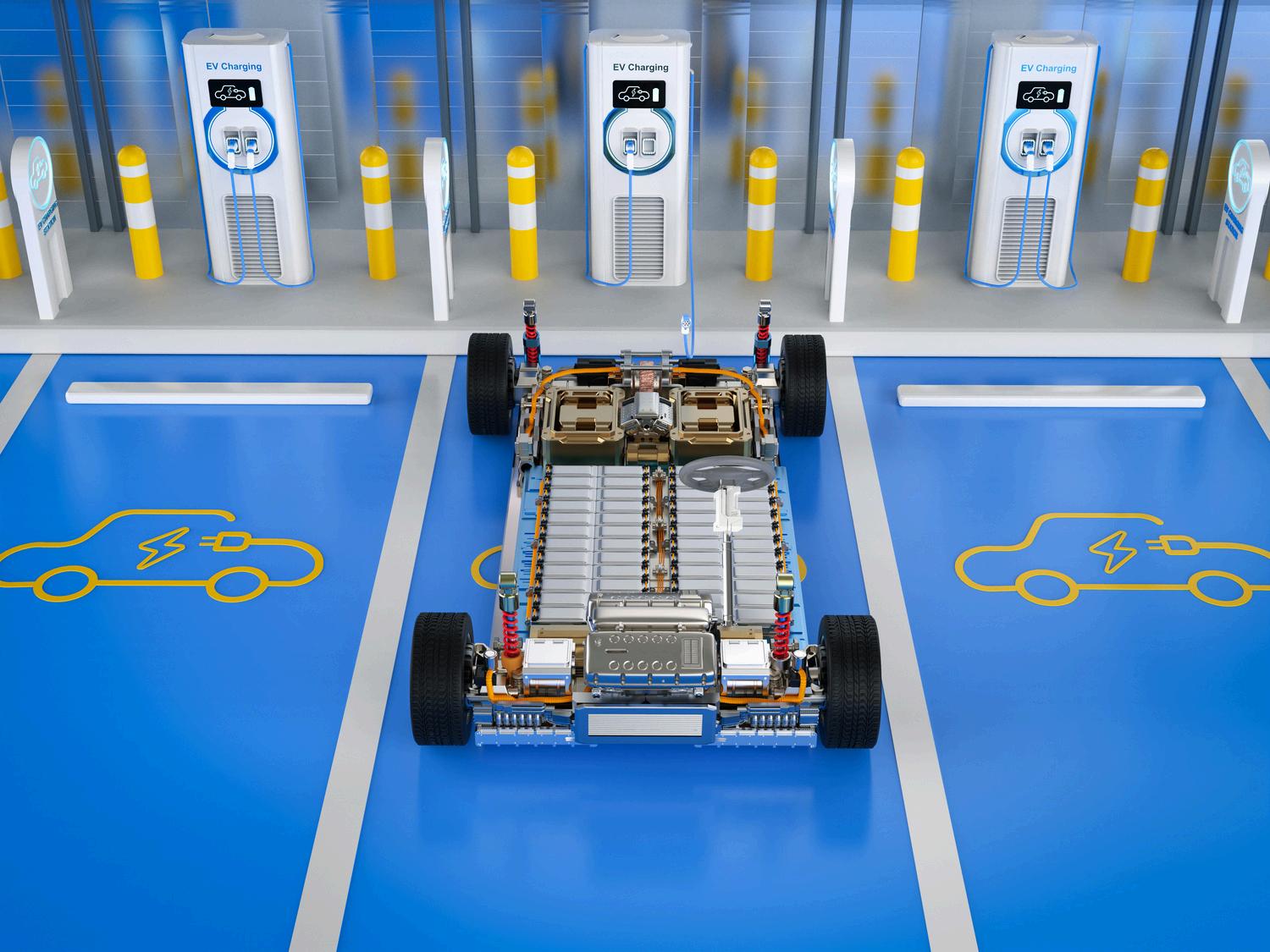
And SBI Partner To Boost EV Charging Infrastructure With Flexible Financing
Statiq has partnered with the State Bank of India (SBI) to provide financing solutions for businesses setting up EV charging stations, marking a significant milestone in India’s transition to green mobility. This initiative will make investing in EV infrastructure easier by offering structured financing options to enterprises and individuals
Motion Partners With Honda Power Pack Energy To Boost EV Battery Swapping In India
Motion & Energy Solutions Pvt Ltd (Matel) has announced a strategic partnership with Honda Power Pack Energy India Pvt Ltd (HEID) This collaboration will integrate Matel’s ePowertrain with Honda’s swappable battery solution, providing EV manufacturers with an efficient and scalable alternative to fixed battery systems
Zypp Electric And Indofast Energy To Deploy 1 Lakh E2Ws, Transforming Last-Mile Logistics
Zypp Electric, India’s leading EV-as-a-service platform, in collaboration with Indofast Energy a joint venture between IndianOil and SUN Mobility is set to revolutionize lastmile logistics with a massive expansion plan. The company has announced the deployment of 100,000 electric two-wheelers (E2Ws) across key cities over the next 12-18 months, marking a significant milestone in India’s EV adoption journey. The expansion aims to ensure seamless operations and accelerate large-scale EV adoption, particularly in metro cities like Delhi NCR, Mumbai, Bengaluru, Hyderabad, Pune, Lucknow, and Jaipur
Euler Motors And Tata Power Renewables Partner To Expand Fast-Charging Infrastructure For Commercial EVs
Euler Motors has partnered with Tata Power Renewables to expand fast-charging infrastructure across India The two companies signed a long-term Memorandum of Understanding (MoU) to provide fast chargers for Euler Motors’ entire product range, ensuring easier access to charging stations for customers With this collaboration, Euler Motors customers will have the convenience of charging their vehicles at strategically located fast-charging stations along key routes To simplify access, customers will receive smart cards that allow seamless use of Tata Power Renewables’ charging network.
Electric Transporters Market To Surpass $108.9 Billion By 2034, Driven By Rising Demand For EcoFriendly Mobility
The global electric transporters market is projected to surpass USD 108 9 billion by 2034, driven by sustainable mobility trends, fuel price fluctuations, and stringent environmental

policies Urban areas are adopting lowemission zones and EV incentives, with Europe and Asia leading the transition Two-wheelers dominate, accounting for 95% of the market, expected to reach USD 103.5 billion by 2034. Lithium-ion batteries, particularly LFP and NMC variants, drive innovation, with the battery market set to hit USD 78 5 billion China leads with a 65% market share, supported by advanced battery-swapping infrastructure Key players include Hero MotoCorp, Yadea, BMW Motorrad, and Yamaha

Fuel Cell Vehicle Market Set to Skyrocket to $40.5 Billion by 2032, Driven by Zero-Emission Goals
The global fuel cell vehicle (FCV) market is set to grow at a 45 1% CAGR, reaching $40 5 billion by 2032 from $2 06 billion in 2024 This surge is driven by environmental concerns, government incentives, and advancements in hydrogen refueling infrastructure Automakers like Toyota, Hyundai, and Honda are leading innovations, expanding FCVs into heavy-duty transport Challenges like high production costs persist, but scaling and R&D efforts aim to reduce costs Asia Pacific, North America, and Europe are key markets, with strong government support accelerating hydrogen adoption for sustainable mobility.
India Accelerates EV Adoption With 28 Million Units By 2030, Rising Energy Demand, And Renewable Integration –IESA Report
India is advancing in decarbonization with rising EV adoption, surpassing 4 1 million sales in FY 2023-24 The India Energy Storage Alliance (IESA) projects over 28 million EVs by 2030, driving electricity demand to 38 TWh by FY 2031-32 The National Electricity Plan aims to expand capacity to 900 GW by 2032, with 500 GW from renewables Charging demand patterns vary, increasing the need for battery energy storage (BESS) and pumped hydro. Smart charging and Vehicle-to-Grid (V2G) models will help balance supply and demand. India prioritizes energy security to support sustainable EV growth and economic expansion
Global E-Bike Motors Market Set To Reach USD 74 99 Billion By 2032 Amid Rising Demand For Eco-Friendly Mobility
The global E-Bike Motors Market is projected to grow from USD 47 52 billion in 2023 to USD 74 99 billion by 2032, at a 5 2% CAGR This growth is driven by advancements in battery technology, government incentives, and increasing demand for eco-friendly transport The Asia Pacific dominates manufacturing, while adoption rises in Europe and North America. Challenges include high costs and inadequate charging infrastructure in developing regions As battery technology improves and infrastructure expands, e-bike motors are set to play a key role in the future of sustainable urban mobility

2024: A Pivotal Year for India’s EV and Battery Recycling Sectors
India’s EV sector experienced significant growth in 2024, with rising adoption in twoand three-wheelers, driven by government policies and investments Sales surpassed one million units, and new safety regulations boosted market confidence. Expansion in charging infrastructure and financing options supported wider accessibility Battery recycling advanced despite challenges from fluctuating metal prices The EV-to-conventional vehicle sales ratio improved, reflecting a shift toward electrification Looking ahead to 2025, increased investments, technological innovations, and improved distribution networks are expected to accelerate the transition to sustainable mobility and clean energy solutions
BYD has partnered with The Singing Machine Company and Stingray to introduce an innovative in-car karaoke experience The collaboration integrates a cutting-edge microphone with the Stingray Karaoke app and BYD’s infotainment system, featuring vocal effects and pitch-detection technology Manufactured by BYD Electronics, the product will debut in Brazil and Europe during Christmas 2024, with broader availability in 2025
Statiq Expands EV Charging Network With New Installation At Express Avenue Mall, Chennai
Statiq, India’s leading EV charging solutions provider, has inaugurated its latest charging station at Express Avenue Mall, Chennai. The new facility includes two 60kW dualgun chargers and three 3-in-1 chargers, ensuring broad compatibility with various electric vehicle models This marks Statiq’s sixth charger in Chennai and the 190th in South India, reinforcing its commitment to strengthening India’s EV infrastructure
Statiq Expands EV Charging Network and Introduces New Technologies in 2024, Reinforcing Its Role in India’s Electric Mobility Shift
Statiq expanded its network to 8,000 chargers across 65 cities in 2024, securing a 22% market share Key deployments include hotels and malls in major cities The company also launched the NECTAR 7 4kW AC charger for direct-to-consumer sales. Statiq plans to further grow its presence by installing 20,000 chargers in tier-2 cities, highways, and tourist destinations by the end of 2025, strengthening India’s EV infrastructure
TATA.Ev Unveils Bold Expansion Plan To Revolutionize India’s EV Charging Infrastructure

TATA ev has announced an ambitious plan to significantly enhance the country’s EV charging network Building on its milestone of over 200,000 EV sales, TATA ev aims to more than double its available charging points to 400,000 by 2027, ensuring greater accessibility and convenience for EV users
Expanding Charging Infrastructure
Nationwide Since 2019, TATA ev has spearheaded India’s EV charging infrastructure development by collaborating with Tata Group companies for private and home charging solutions and initiating public charging networks in high-adoption urban centers
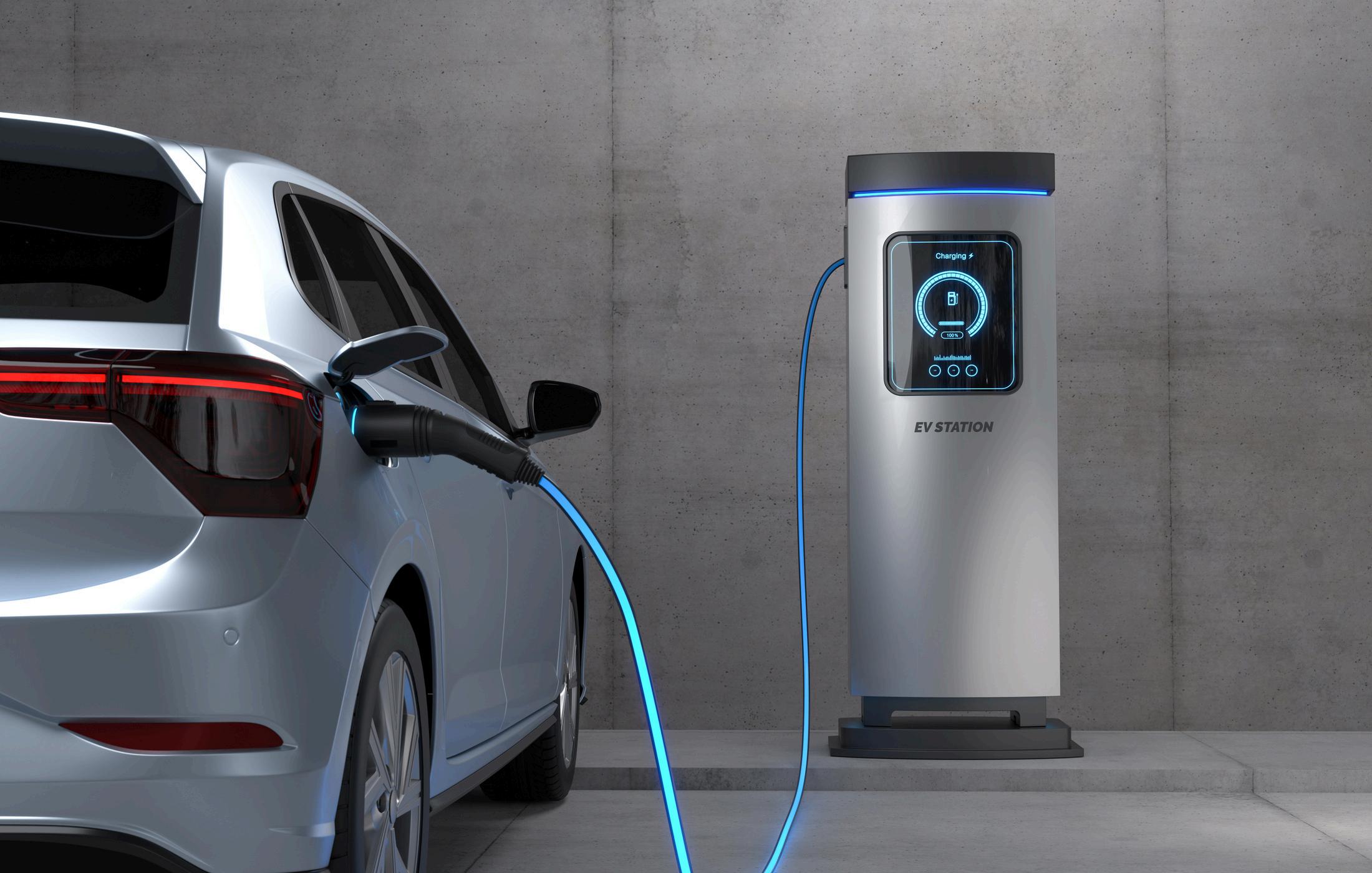
Tata Curvv.Ev Sets New EV Record With Fastest Kashmir To Kanyakumari Drive
TATA ev set a new record by completing India’s fastest EV drive from Kashmir to Kanyakumari in just 76 hours and 35 minutes The Curvv ev SUV coupe covered 3,823 km with only 16 charging stops, reducing total charging time to 17 hours This feat highlights advancements in EV technology and India’s expanding charging infrastructure, now with 18,000 chargers Tata’s iRA ev app and Unified RFID card simplify EV travel This milestone proves long-distance EV travel is efficient, addressing range anxiety and accelerating India’s shift to sustainable mobility
Odysse Electric Vehicles Reports 10% Growth in February Sales, Expands Nationwide Presence
Odysse Electric Vehicles recorded 312 unit sales in February 2025, achieving 10% month-on-month growth Expanding across 150 cities in 17 states, the company strengthens its presence in Haryana, Punjab, Bihar, Maharashtra, Rajasthan, and Uttar Pradesh CEO Nemin Vora attributes growth to rising EV adoption and supportive policies Established in 2020, Odysse offers seven diverse models, catering to commuters, performance riders, and last-mile delivery services
TVS Motor Reports 10% Sales Growth In February 2025, Driven By Strong EV And Export Performance
TVS Motor Company achieved 10% year-on-year growth in February 2025, selling 403,976 units, up from 368,424 in February 2024 Two-wheeler sales grew by 10%, with scooters surging 24% and motorcycles rising 5% EV sales saw a strong 34% increase, reaching 24,017 units Exports climbed 26% to 124,993 units, while three-wheeler sales rose 14% TVS continues expanding its global presence, driven by innovation, rising EV adoption, and strong demand across key segments





India’s electric vehicle (EV) revolution is gaining remarkable momentum, with several business leaders driving the change that is transforming the country’s transportation landscape As the world moves towards sustainability, electric mobility is seen as a key component in India’s efforts to reduce carbon emissions and improve air quality Business leaders in India are seizing the opportunity to lead this transformation, positioning themselves at the forefront of this critical movement
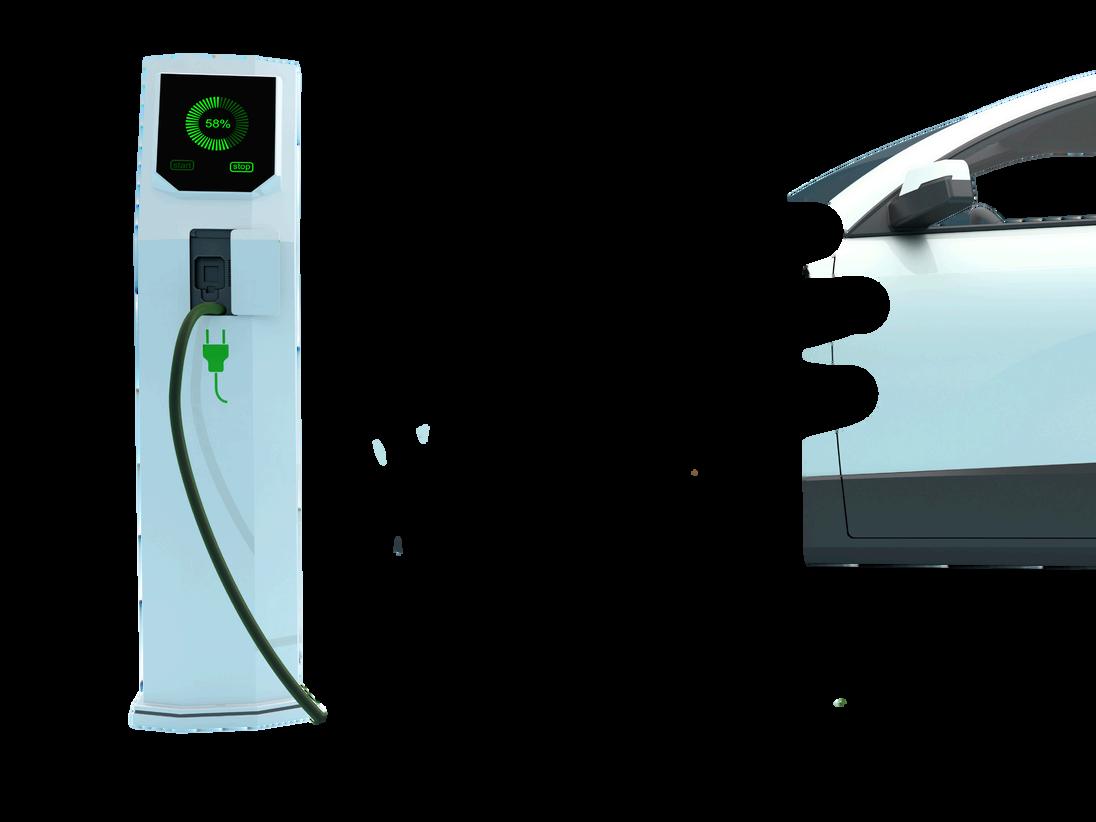
rapid expansion of EV charging infrastructure have shown how quickly the electric vehicle ecosystem can evolve when driven by strong leadership and innovation By offering affordable EVs and providing the necessary infrastructure for widespread adoption, business leaders like Bhavish Aggarwal, CEO of Ola Electric, are shaping the future of India’s electric mobility sector
India’s push for electric mobility is backed by ambitious government initiatives aimed at promoting clean energy solutions and reducing reliance on fossil fuels The Faster Adoption and Manufacturing of Hybrid and Electric Vehicles (FAME) scheme is one such initiative, offering incentives for both consumers and manufacturers to encourage the adoption of EVs. As India strives to become a global leader in renewable energy, the role of EVs in this strategy is paramount, providing a cleaner alternative to traditional gasoline and dieselpowered vehicles
Leading the charge in the EV space are companies such as Tata Motors, Mahindra Electric, and Ola Electric, with their innovative solutions making electric mobility more accessible and appealing to the masses Tata Motors, with its wide range of electric cars, has been a major player in the EV market Their commitment to sustainability has helped make electric cars more affordable, catering to the needs of everyday consumers Mahindra Electric, a subsidiary of the Mahindra Group, is another pioneer in the EV sector, focusing on electric commercial vehicles Their leadership in electric three-wheelers has been instrumental in driving adoption in urban and rural areas alike
Ola Electric, the latest disruptor in the Indian EV market, has quickly gained attention for its electric scooters, combining cutting-edge technology with modern design Their impressive sales figures and the

In addition to automakers, startups like Ather Energy, Revolt Motors, and Simple Energy are making significant strides in the electric twowheeler segment, tapping into the growing demand for sustainable and cost-effective transportation options These companies are reshaping consumer behavior, showing that EVs can be just as stylish, affordable, and convenient as their conventional counterparts The growing awareness of climate change and the need for green solutions has created a ripe environment for EV startups to flourish.
Business leaders are not only focusing on the vehicles themselves but are also heavily involved in the development of supporting infrastructure The expansion of EV charging stations, batteryswapping technology, and renewable energy-powered charging solutions is crucial for ensuring that EV adoption reaches its full potential Companies such as Reliance and Adani are also entering the space, providing solutions for charging infrastructure, which is essential for widespread adoption across urban and rural areas
The future of India’s EV market looks bright, with business leaders at the forefront of driving the country’s transition towards clean and sustainable transportation Their efforts in manufacturing, infrastructure development, and public awareness are ensuring that India’s electric mobility revolution is not only on track but poised to become a global success story
India’s two-wheeler electric vehicle (EVs) market has shown immense growth in recent years, driven by government incentives, rising environmental concerns, and fuel costs The two-wheeler EVs lead the country’s automobile market, making it the second largest in the world According to a report by Statista, their sales rose exponentially with over 15 million units a year, making their penetration rate 4.4% in the 2023 fiscal year Government incentives and subsidies have played a major role in this significant demand for EVs which has made EVs an accessible and attractive option for consumers.
For Instance, government schemes like Faster Adoption and Manufacturing Hyrbif and Electric Vehicles (FAME) and the recently launched PMEDRIVE scheme encourage consumers to purchase EVs by giving them major incentives and tax cuts on their purchase. This reduces the upfront cost of their vehicles and results in higher sales of EVs
However, with recent cuts in subsidies, this landscape is slowly shifting, yet stimulating new potential for innovation and opening new avenues for the industry As the market started adapting to this reduction in direct financial support, it encouraged the manufacturers to invest in quality improvement and sustainable practices, making India’s EV industry more sustainable and independent
While one may think that loss of incentives may lead to short-term impacts such as fewer sales and higher upfront costs, it opens a plethora of opportunities for technological advancement, affordability, and infrastructure in the Indian EV ecosystem in the long run
The Immediate Challenges
Indian market is price-sensitive, and reduced subsidies directly impact the affordability of EVs. Government subsidies aid in capping the price for EVs up 10-15%, reducing its upfront cost and making it more affordable With these incentives scaled back, the market might experience a temporary decline in two-wheeler EV sales resulting in their slower adoption as consumers will face high upfront costs This gap not only dwindles the adoption rate but also raises environmental concerns As fewer consumers make their transition toward EVs due to their high cost and lesser range, the dependence on petroleum-based vehicles will more likely persist impacting India's goal of reducing carbon emissions
While reduced subsidies present challenges, the opportunities for innovations within the industry, Ba for instance remains a crucial driver for EV affordabil Leading manufacturers in the industry have committ in investing high-performance and energy-efficient lithium-ion batteries that are cost-effective, dur extended range According to the International En demand for lithium-ion batteries increased by almo Thus, the focus has been shifted from incentiv efficient technology that will lower down EVs costs more affordable for Indian consumers who prefe durability in their vehicles By using advanced battery manufacturers can easily offer a consistent and reliable to their consumers without holding much on governmen

The diminishing incentives and subsidies have turned the focus on product quality Manufacturers are now prioritizing giving better quality to stay competitive in the market Higher energy-based and durable battery packs that not only extend the range but require minimal maintenance have started dominating the market. This shift towards quality also shows that even wth higher upfront cost, consumers can easily benefit from better performance, fewer breakdowns, and extended batteries This will make EVs a practical and durable choice even without an added push of incentives
Increased Focus On Product Quality and Durability Building A Sustainable and Self-reliant EV Market
Tax cuts and lowering subsidies may initially result in slow growth, but it push the industry towards becoming more self-reliant in every term from manufacturing to selling their vehicles Manufacturers are increasingly investing in research and development to lower the production cost and their dependence on government incentives This change will likely make the market more sustainable and competitive globally by using locally developed technology that caters to the unique needs of Indian consumers As technology advances, costs will ultimately decrease, creating a more accessible EV market and fostering long-term independent growth
Providing Long Term Value In The Total Cost Of Ownership
Another positive outcome that can be attributed to this shift is a greater focus on the total cost of ownership (TCO) of vehicles. Without heavily relying on incentives, manufacturers can promote long-term savings of EVs through lower fuel consumption and maintenance costs, As per Alliance for Energy Efficient Economy, twowheeler EVs offer significant cost savings as their operational expenses are lower when compared to petroleum-based vehicles. As buyers become more aware of the TCO advantages of two-wheeler EVs, their appeal will ultimately get strong despite reduced incentives
EVs are the future. According to a report by McKinsey, 86 % of consumers are willing to purchase two-wheeler EVs while 25 % of Indian consumers prefer hybrid vehicles which is higher than the global average of 15%, this shows consumers’ interest in transitioning towards an eco-friendly choice and taking a climate worthy risk for
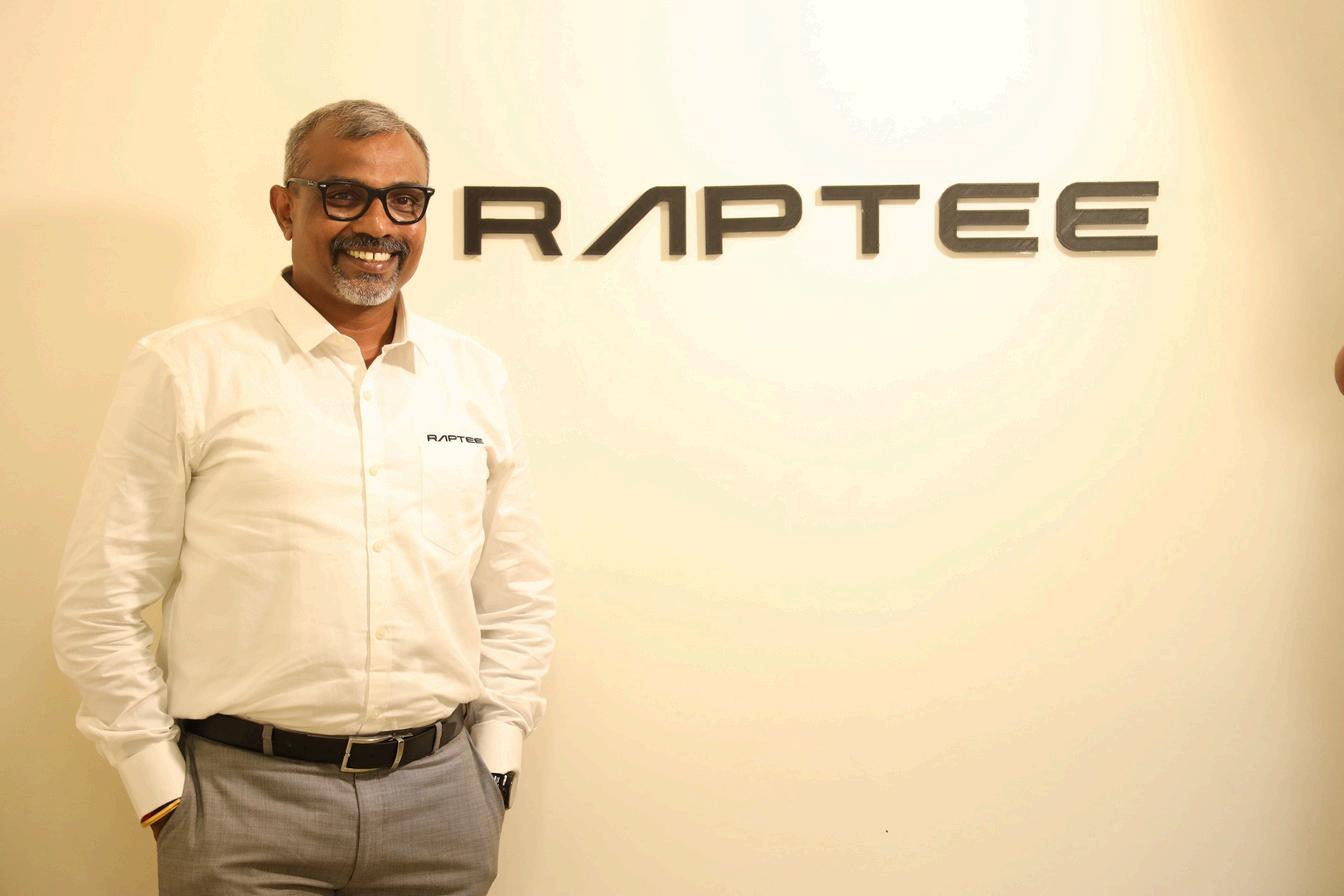


Electric vehicles are not a recent phenomenon in India, as their seeds were sown as early as 2001 when Chetan Maini introduced the REVA electric car, a compact, eco-friendly model, the OG of Light EVs No doubt, the vehicle was ahead of its time, but as happens with futuristic innovations, the market was just not ready for it However, REVA did set the stage for a wave of new-age entrepreneurs and legacy corporations who continue to redefine the e-mobility space. Such early efforts emphasized practicality, efficiency, and affordability while addressing the needs of urban commuters On that note, let’s discuss the visionary ventures that have been shaping the future of electric mobility in India and influencing innovations
The ‘Form over Function’ Debate
The initial landscape that focused on practicality quickly changed with Tesla’s global prominence Tesla changed how the average public perceived EVs, which had sleek designs and high acceleration, and marked a shift towards the ‘form over function’ mindset This approach soon became the new standard in the mobility segment, driving change in how EVs were conceptualized and designed. In India too, we witnessed the rise of startup brands such as Ather Energy, Ultraviolette, and Raptee, who became the adopters of this philosophy of speed However, not all players have followed this market trend Take, for instance, startups like iGowise Mobility that are building practicality and high utility to enhance user safety and comfort without compromising on the fun and adrenaline rush of the EV drivetrain
The EV revolution we so proudly talk about is not confin Today, legacy automakers are breaking out of their m race For instance, players like Tata, Mahindra, and Hero bringing scale, expertise, and perspective to the mob instance, in the heavy electric vehicle (HEV) space, Tata i the only legacy automobile company that has successfu to e-mobility On the other hand, Mahindra, though a further poised to shape the market’s growth
However, in the small vehicle space, there has no groundbreaking innovation in recent years While the motorcycle segment has become more premiumized, the scooter & moped spaces

have been quite stagnant However, new experiments like Hero MotoCorp’s Surge S32 EV, a convertible that can change from a threewheeler into a two-wheeler within 3 minutes, are certainly getting more eyeballs Bold experiments like this are the need of the hour, especially from Indian legacy corporates that have been traditionally conservative when it comes to R&D when compared to their western counterparts.
Meanwhile, some of the automobile giants are showing us how to work smart Companies like TVS, and Yamaha are investing in newage startups and adopting a faster approach to leverage innovative next-gen technologies without building solutions from scratch.
In the midst of evolving consumer preferences and fleeting global trends, practicality hasn’t taken too much of a backseat. Today, more startups like Wayve, Wings, PMV, etc are coming back with Revainspired practical urban commuters Undoubtedly, visionary startups and legacy corporations continue to shape India's e-mobility landscape While modern startups are modernizing designs and technology, established players are bringing scale, expertise, and resources to accelerate growth This current trend of collaboration and technology sharing suggests that this M&A phenomenon is expected to accelerate in the second half of this decade
Beyond the product and innovative forms, new business models and hat are expected to contribute to a ustainable



The electric vehicle (EV) sector in India is evolving rapidly, driven by technological advancements and changing consumer demands As per TCS global study,nearly 64% of Indian consumers are likely to choose an EV as their next vehicle, reflecting a monumental shift in perception and an increasing readiness to adopt this technology At the heart of this transformation is entrepreneurship an essential force in shaping any nascent industry New-age entrepreneurs have brought innovation, agility, and futuristic thinking to an industry ripe for disruption, while legacy players complement this dynamic growth with their established expertise, scale, and infrastructure investments Together, they are creating a thriving ecosystem that balances innovation with reliability
New- Gen Entrepreneurs have entered the industry with bold visions, challenging conventional automotive practices and offering fresh solutions tailored to modern needs. They are pushing the boundaries of what electric mobility can achieve, embracing new developments like next-generation battery technologies, high-voltage systems, and lightweight materials. Their innovations address crucial challenges such as efficiency, range, and cost, ensuring EVs become an integral part of everyday transportation
These entrepreneurs are not just focused on product delivery but equally on enhancing the overall consumer experience, which forms the core of user satisfaction and loyalty Their efforts often go beyond merely selling vehicles they aim to create an ecosystem where electric mobility becomes seamless, affordable, and accessible to all Through a deep understanding of diverse customer needs, from urban

professionals to rural commuters, these new-age leaders are bridging gaps and building the foundation of the industry Their agility in adopting market trends and quickly iterating on solutions is helping the EV market achieve growth that would have seemed unattainable just a few years ago
Established automotive brands play a critical role in accelerating the shift towards electric vehicles (EVs), leveraging their vast and longstanding networks One of their strongest advantages is their extensive dealership network, which enables them to connect with a large customer base right from day one While startups may require 5–10 years to build such robust networks, these legacy brands already have access to a significant number of outlets, giving them a distinct edge in reaching a wide audience quickly
With a significant advantage in large-scale manufacturing, robust supply chains, and decades of expertise in customer service, these legacy players bring a unique edge to the EV sector. Their ability to manage customer expectations and deliver seamless after-sales services has been instrumental in breaking the initial stigma surrounding EVs, enabling customers to embrace this technology with greater confidence
Legacy brands are pivotal in scaling EV production, ensuring consistency and reliability across their offerings They have made substantial investments in charging infrastructure, addressing range
anxiety one of the primary barriers to widespread EV adoption By deploying charging stations in key locations, such as major cities and highways, they have contributed to making electric mobility more practical and accessible to a broader audience.
These companies are also expanding their product portfolios, introducing electric variants across multiple categories to cater to different consumer preferences From compact urban commuters to premium luxury models, legacy brands offer a diverse range of options, ensuring EVs appeal to various market segments Their expertise enables the integration of advanced technologies while ensuring a reliable and high-performing ownership experience This strategic diversification helps position EVs not as experimental options but as practical, aspirational, and performance-oriented alternatives to traditional vehicles
By combining their established credibility and industry experience with a forward-looking approach, legacy automotive brands continue to play an irreplaceable role in transforming EVs from a niche category into a mainstream mode of transportation that is practical, reliable, and aspirational
The expanding Indian EV market has also attracted the attention of global players, who bring significant investments and advanced technologies Companies like VinFast and BYD are making substantial inroads, launching products tailored to the Indian market's needs BYD, in particular, has become a key player in public and private EV segments with its electric cars, targeting both fleet operators and individual customers. The participation of such international brands has not only brought healthy competition but also strengthened the ecosystem by introducing cutting-edge technologies
(E2W):
The journey of India’s electric vehicle market began with the twowheeler segment, led by innovative startups that saw immense potential in this space Building a two-wheeler is inherently less complex than four-wheelers, making it the ideal entry point for the EV industry. Moreover, two-wheelers are deeply embedded in India’s transportation culture, serving as a staple for urban households, rural commutes, and varying socio-economic groups
New-age players like Ather Energy and Ola Electric have disrupted this segment with groundbreaking offerings. Ather Energy, for instance, redefined the category with its smart and performance-oriented scooters that combine intuitive technology with sleek designs Recognizing the need to serve different customer segments, the company introduced variants such as the Ather Rizta, aimed at families, in addition to its flagship scooters for tech-savvy individuals.
On the other hand, legacy players like TVS, Bajaj, and Honda have made significant inroads into the electric two-wheeler segment, attracted by its immense potential for high volumes Although the penetration of electric two-wheelers currently stands at just 6%, this represents a huge untapped potential, with adoption expected to increase significantly in the coming years Of the total 1 94 million EVs sold across all vehicle segments in India in 2024, electric scooters and motorcycles accounted for 1 14 million units, representing an impressive 59% of the market. This data underscores the crucial role two-wheelers play in shaping India’s EV ecosystem, driven by a combination of innovative startups and the strategic moves of established automotive brands.

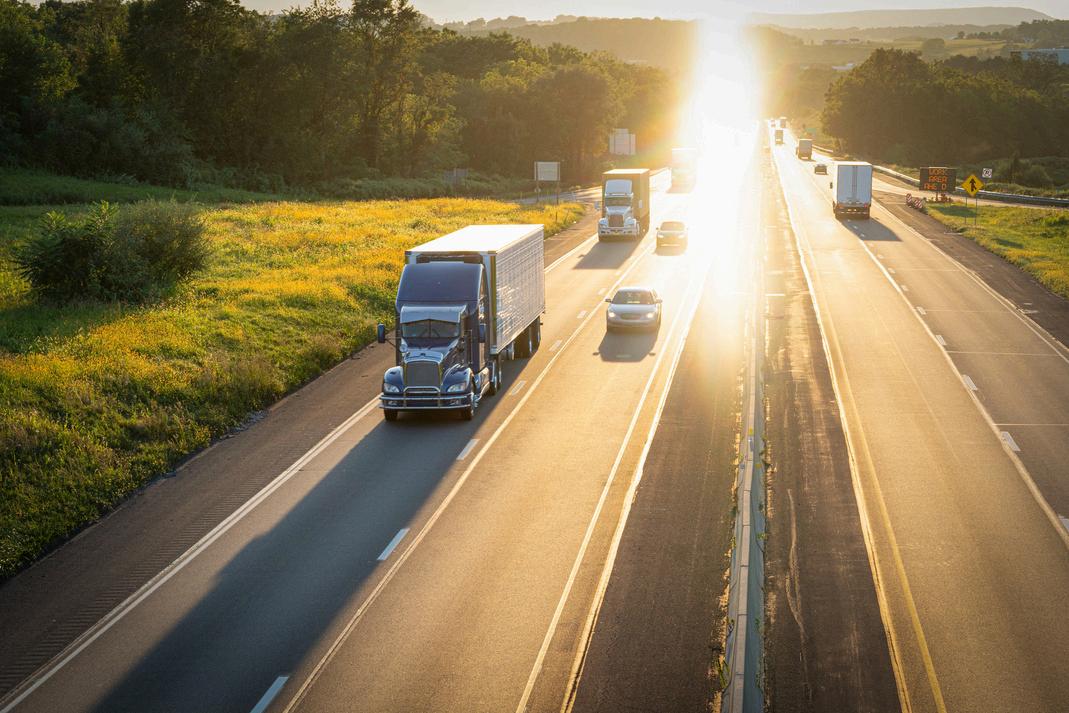
3-Wheelers (E3W): Transforming Last-Mile Connectivity
Electric three-wheelers are driving some of the highest EV penetration rates (nearly 50%) in India having rapidly penetrated both urban and rural landscapes due to their affordability and practicality for shortdistance travel and goods transport The segment has seen participation from new entrants and traditional players, delivering affordable EV solutions that address the needs of micro-entrepreneurs and fleet operators Their contribution is vital in making EVs accessible to the masses.
The four-wheeler segment has experienced considerable growth, led initially by homegrown brands and later joined by global players Indian automakers paved the way with models that combined practicality, performance, and affordability, gradually shifting consumer perception of EVs from cost-conscious purchases to aspirational products Luxury brands such as Mercedes-Benz, BMW, and Audi have followed suit, showcasing that EVs offer not only superior ownership experiences but also cutting-edge performance
The rapid expansion in product offerings and the proliferation of charging networks have spurred adoption. Consumers now see EVs as a viable option across categories, from family vehicles to premium status symbols
Conclusion: A Collaborative Ecosystem
India's EV revolution is a testament to the power of collaboration between diverse stakeholders entrepreneurs with visionary ideas, legacy players with robust networks and customer trust, and international investors driving technological advancements This synergy is propelling India toward its goal of transitioning to cleaner mobility, while addressing challenges such as infrastructure gaps and consumer skepticism.
As a nation, India’s collective effort to embrace electric mobility is setting a global example By continuing to foster innovation, invest in infrastructure, and educate consumers, the country is well-positioned to become a global leader in the EV sector.


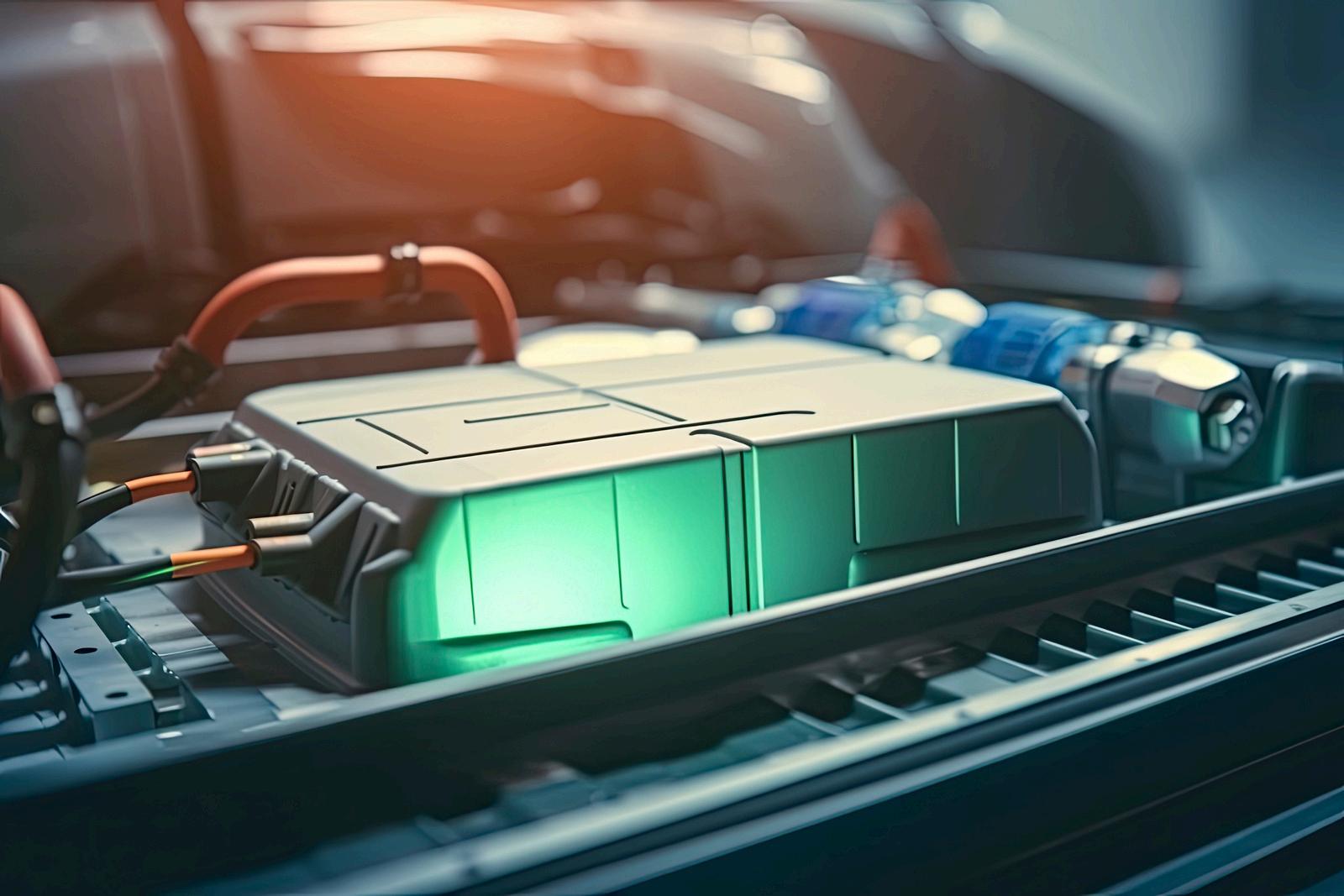
In 2014, the Indian government launched the Make in India initiative to turn India into a global manufacturing hub The program aimed to boost production across sectors, reduce import reliance, attract foreign investment and create employment opportunities. A decade on, the program has seen vast success and while there are still hurdles to cross, Make In India has undoubtedly placed India on the world manufacturing map
An aspect of ‘Make in India” that saw substantial growth is the automotive manufacturing sector, which saw a 57% rise in Foreign Direct Investment equity inflow into the country, from 2014 to 2022 These investments have paved the way for technological investments placing India among the leaders in the the automotive industry In 2023, India set a target of becoming a developed nation by 2047 and also attaining energy independence by then. Manufacturing in automobiles needed to align itself with these goals and other national initiatives for eco-friendly transportation Implementation of the Bharat 6 norms, FAME schemes incentivised the production of commercial EVs, which is now a burgeoni automotive industry EV manufacturing has a larger e exists crucial players of battery refurbishers and rec backbone of EV adoption, sustainable energy and enabl
The Role of Battery Recycling
Recycling lithium batteries means extracting critica Lithium, Nickel) from the used batteries. The batteries sustainable source for critical materials and by exte Recycling practices currently are able to extract upto 9 By supporting local production and reducing depe recycling aligns with the 'Make in India' initiative economy by reintroducing recovered materials back in process, maximizing resource use and minimizing wast
Battery recycling for lithium batteries, being a new ind new employment and economic opportunities suc material processing and recovery. It promotes local e contributes to the overall economic growth Addition the scope for allied industries of logistics, and waste c technological advancements are also taking place in th innovative methods are being developed for efficien material recovery This drives innovation and enhances of the Indian industry

Battery recycling heavily promotes self-reliance and supports Make in India but its full potential has not been realised Incentivising and supporting registered recyclers would provide a well-timed boost to the sector. Secondly, investing in the development of the collection and transportation of battery waste would provide a supportive infrastructure to the industry Overall, India only has a capacity of recycling 2 Gwh of battery waste presently, whereas according to Niti Aayog 128 Gwh of batteries would be ready for recycling by 2030 This highlights the significant potential to scale India's battery recycling capabilities, to enable a circular economy for metals and hence support the 'Make in India' vision for electric vehicle batteriesthe future of the automobile industry
More technological advancements must be made in this sector for better recovery and energy efficiency to enable the sourcing of quality more sustainable critical materials A healthy battery recycling ontributing to d for recycling so propel the ng leader. By ndia will also n it comes to


India's electric vehicle (EV) landscape is poised for significant transformation in 2025, driven by robust government policies and substantial financial investments These twin engines are set to accelerate the nation's shift towards sustainable mobility, aligning with global environmental objectives and addressing pressing domestic concerns such as urban pollution and energy security.
Government Policies: Steering the EV Revolution
The Indian government's commitment to promoting electric mobility is evident through a series of strategic initiatives aimed at fostering EV adoption across the country
One of the cornerstone policies is the PM E-DRIVE scheme, introduced with a substantial allocation of ₹10,900 crore (approximately US$1 3 billion) Effective from October 1, 2024, to March 31, 2026, this scheme offers financial incentives for the purchase of various electric vehicles, including two-wheelers, three-wheelers, ambulances, and trucks. Notably, it provides specific subsidies for e-ambulances and e-trucks and supports public transport agencies in acquiring 14,028 electric buses, thereby enhancing the public transportation infrastructure
In addition to national efforts, regional governments are implementing supportive measures For instance, the Delhi government has extended its EV policy until March 2025, continuing subsidies and incentives to encourage EV purchases. This extension aims to maintain the momentum of EV adoption in the capital, contributing to the broader national objective of increasing the share of electric vehicles in the overall vehicle market
Furthermore, the government is considering expanding its EV manufacturing incentives to include automakers producing electric vehicles in existing factories This policy revision is expected to attract investments from major automotive players, thereby boosting domestic EV production and making electric vehicles more accessible to consumers.
Complementing government policies, significant financial investments are propelling India's EV sector towards rapid growth
A notable development is the partnership between Mahindra & Mahindra (M&M) and the British International Investment (BII). Established in July 2022, this collaboration aims to accelerate the availability and adoption of electric vehicles in India BII committed up to ₹1,925 crore to M&M's new EV venture, with ₹1,200 crore already invested by September 2023 This infusion of capital is instrumental in scaling up production capacities and advancing technological innovations within the EV sector
Additionally, international investors are showing increased interest in India's EV market The entry of global players not only brings in capital but also introduces advanced technologies and best practices, fostering a competitive and dynamic ecosystem Such investments are crucial for building the necessary infrastructure, including charging stations and battery manufacturing facilities, which are essential for the widespread adoption of electric vehicles


Despite the positive trajectory, the EV sector faces challenges that require continued attention The funding for the Indian EV industry experienced a decline in 2024, dropping to $586 million from $808 million in 2023. This reduction underscores the need for sustained financial support and investor confidence to maintain growth momentum
Moreover, the development of adequate charging infrastructure remains a critical factor. The government's initiatives to expand the charging network are vital to alleviate range anxiety among potential EV buyers and to support the operational efficiency of electric public transport systems.
The government's target of achieving 30% electric vehicle adoption by 2030 is ambitious To realize this goal, continuous policy support, financial incentives, and public-private partnerships are essential The integration of renewable energy sources for charging infrastructure, advancements in battery technology, and consumer awareness campaigns will play pivotal roles in this transition
As 2025 approaches, India's two-wheeler EV sector stands at a pivotal juncture. The synergistic effect of progressive government policies and substantial financial investments is creating a conducive environment for the EV ecosystem to flourish While challenges persist, the concerted efforts of policymakers, industry stakeholders, and investors are steering India towards a sustainable and electrified transportation future.


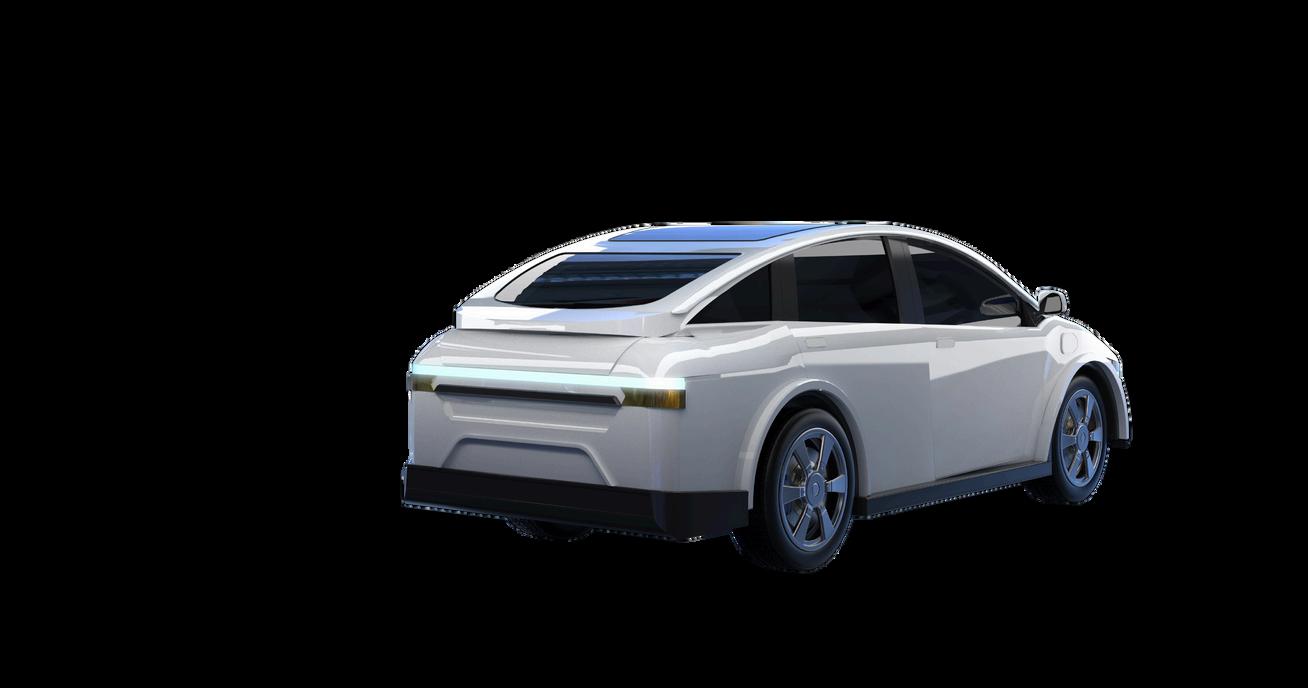


The Indian electric vehicle (EV) market has been experiencing rapid growth, driven by a combination of favorable government policies, rising environmental concerns, and a shift in consumer preferences towards sustainable mobility For Indian entrepreneurs, this growth presents a significant opportunity to capitalize on the rising demand for EVs and associated technologies As the country moves toward a greener future, entrepreneurs who align their businesses with this shift are poised to play a key role in shaping India’s EV landscape
One of the major factors contributing to the growth of the EV market in India is the government’s push for cleaner energy solutions Initiatives like the Faster Adoption and Manufacturing of Hybrid and Electric Vehicles (FAME) scheme, along with state-level incentives, have provided crucial financial support to EV manufacturers and consumers. Additionally, the government’s commitment to achieving net-zero emissions by 2070 has provided a long-term growth trajectory for the EV industry Entrepreneurs in the EV space can take advantage of these government incentives to reduce their costs and enhance their competitiveness in the market
While the Indian EV market is still in its nascent stages, the growth potential is immense The market size is expected to grow significantly in the coming years as the cost of EVs continues to decrease, technology improves, and the charging infrastructure expands. Entrepreneurs can tap into this growth by investing in the manufacturing and development of electric vehicles, electric vehicle batteries, and charging stations Moreover, the shift to EVs presents an opportunity for innovation in related sectors such as vehicle servicing, financing, and energy storage solutions
Battery technology is a crucial component of the EV market, and this provides entrepreneurs with a unique opportunity to focus on developing cost-effective, high-performance batteries Lithium-ion batteries, which are currently the most common in EVs, are expensive and often imported. Indian entrepreneurs can look to invest in local battery manufacturing and research to reduce dependency on imports and lower production costs This also opens doors for collaborations with international players, academic

institutions, and research labs focused on developing new battery technologies like solid-state batteries, which offer superior performance and safety compared to conventional options
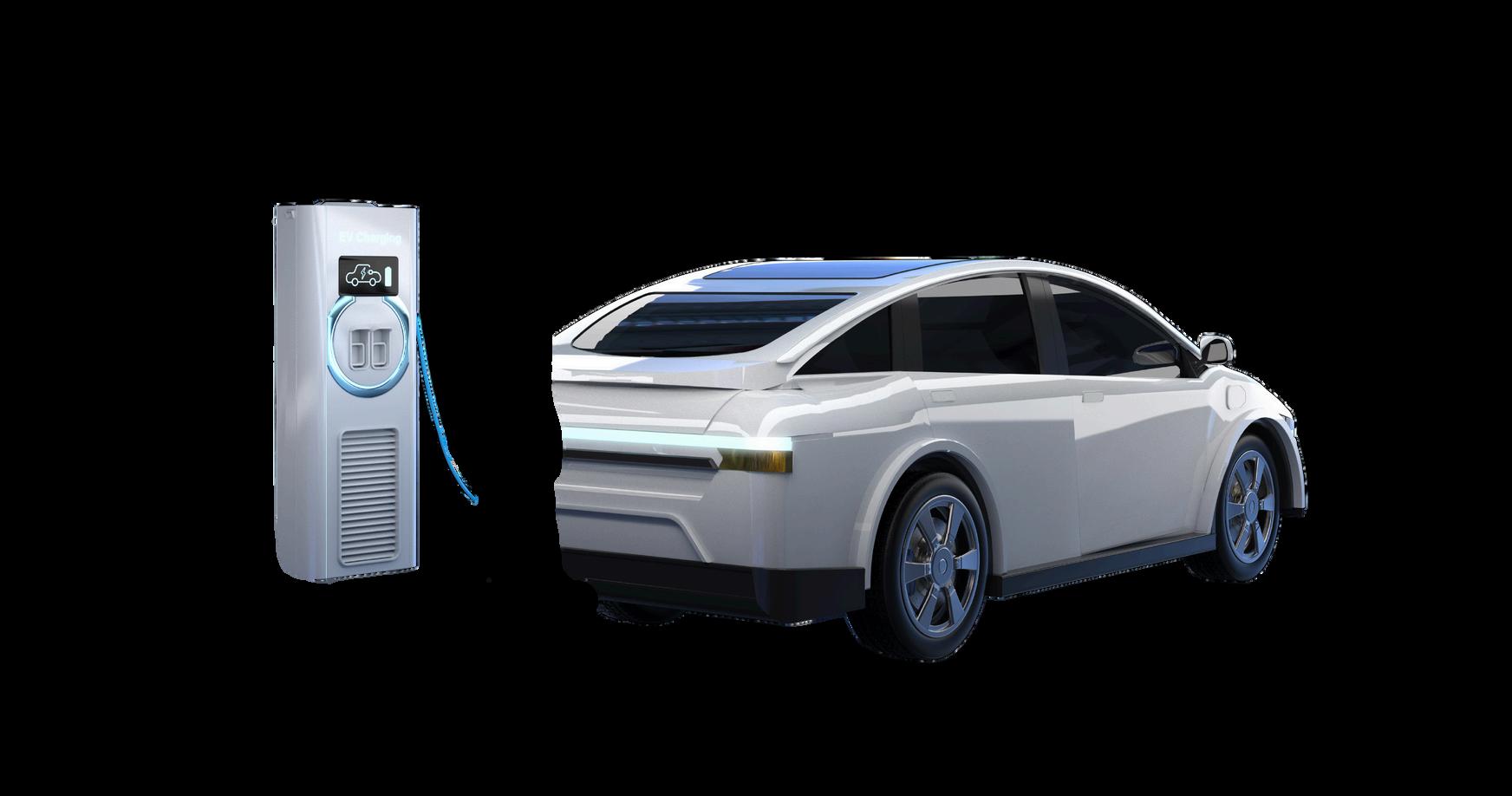
Another area ripe for innovation is the EV charging infrastructure. As the adoption of electric vehicles grows, there is a growing need for an extensive network of charging stations Entrepreneurs can step in and establish charging stations, especially in rural areas and smaller towns, where the infrastructure is often lacking Partnering with government bodies, real estate developers, and local businesses can help accelerate the expansion of this infrastructure Additionally, businesses can look at integrating fast-charging solutions and smart charging technologies to improve convenience for EV owners
The Indian consumer is becoming increasingly aware of the environmental benefits of EVs, which is driving demand Entrepreneurs can take advantage of this growing awareness by focusing on educating consumers about the advantages of EVs, such as lower operational costs, reduced carbon footprint, and government incentives. Effective marketing strategies and collaborations with established EV manufacturers can further enhance their market presence
Despite the immense potential, challenges remain Entrepreneurs will need to navigate hurdles such as high upfront costs, lack of awareness, limited charging infrastructure, and regulatory hurdles However, with strategic planning and innovative solutions, these challenges can be overcome Collaborating with stakeholders such as vehicle manufacturers, battery suppliers, and government agencies can help entrepreneurs build a resilient EV business model.
The road ahead for Indian entrepreneurs in the electric vehicle market is full of opportunities With the right investments in technology, infrastructure, and partnerships, entrepreneurs can position themselves as key players in India’s transition to sustainable transportation As the market matures and demand continues to rise, those who seize the opportunity early on will be at the forefront of this revolutionary shift in India’s automotive industry.
Electric vehicles (EVs) are emerging as a critical component in the drive toward a sustainable future. Corporations are increasingly recognizing the benefits of transitioning their fleet to EVs, not only as a way to reduce carbon emissions but also as a part of their longterm strategy to improve operational efficiency and reduce costs. As the world moves toward cleaner energy solutions, the adoption of EVs in corporate fleets is gaining momentum However, for companies to successfully integrate electric mobility, a wellstructured strategy is needed to address key challenges such as infrastructure, costs, and employee engagement.
One of the first steps for companies looking to adopt EVs in their fleets is to invest in the necessary infrastructure This includes the installation of electric vehicle charging stations at workplaces, which is essential to ensuring that EVs can be charged during off-hours. The availability of reliable and accessible charging stations will play a significant role in the adoption rate, as employees will need assurance that they can easily charge their vehicles during work hours In addition to workplace charging, companies can explore partnerships with external charging providers to expand charging networks across cities and along key transit routes
Another crucial factor to consider is the upfront cost of purchasing EVs, which can be significantly higher than traditional gasoline or diesel vehicles. While EVs offer long-term savings in terms of fuel and maintenance, the initial investment can be a barrier for some companies To mitigate this challenge, businesses can look into government incentives, subsidies, and tax breaks, which are often available to companies transitioning to greener fleets These financial incentives can reduce the financial burden and make the transition more affordable
Additionally, businesses need to assess their fleet's requirements to determine which EV models would be most suitable for their operations. For example, companies with delivery or service fleets may need EVs that offer a larger range and capacity for transporting goods On the other hand, businesses with employee commuting
fleets may focus on smaller, more cost-efficient models Conducting a thorough analysis of operational needs will help companies select the right EVs, ensuring that the fleet remains efficient and functional
Employee engagement and education are also vital to the successful implementation of EV solutions Corporate fleets often involve a range of drivers, and ensuring they are properly educated on how to operate and maintain EVs is key to ensuring smooth operations Offering training programs and providing clear information about the benefits of EVs can help employees embrace the transition. Additionally, incentives such as offering employees the opportunity to use company EVs for personal use or providing charging benefits can further encourage adoption
As part of a broader sustainability strategy, companies should also prioritize monitoring the performance of their EV fleets By using data analytics, businesses can track factors such as energy consumption, maintenance schedules, and vehicle performance This data-driven approach will allow companies to optimize fleet operations, make informed decisions about vehicle replacements, and measure the overall environmental impact of their EV adoption
Finally, collaboration with industry partners is an effective strategy to accelerate the adoption of EV solutions Companies can partner with charging infrastructure providers, vehicle manufacturers, and technology companies to find tailored solutions that suit their specific needs Through these collaborations, businesses can stay ahead of regulatory changes, explore new technologies, and access resources that will further smooth the transition to electric mobility


The adoption of EVs in corporate fleets is not just about adopting new technology; it’s a holistic approach that involves infrastructure development, financial planning, employee engagement, and strategic partnerships By taking a structured approach to adopting electric mobility, companies can position themselves as leaders in sustainability, reduce their carbon footprint, and help accelerate the global transition to cleaner transportation
India’s electric vehicle (EV) revolution is gathering momentum, driven by a critical element public-private partnerships (PPPs) These collaborations have emerged as a powerful mechanism to address the challenges of scaling EV infrastructure, ensuring sustainable development, and achieving national goals for clean mobility By uniting government initiatives with private-sector expertise, India is advancing toward a robust EV ecosystem
One of the primary hurdles in EV adoption is the lack of an extensive charging network To tackle this, the government has introduced policies and incentives encouraging private players to invest in charging infrastructure FAME II (Faster Adoption and Manufacturing of Hybrid and Electric Vehicles) is a key scheme, offering subsidies for setting up charging stations. Private companies like Tata Power, Ather Energy, and ChargeGrid have partnered with public institutions to install thousands of charging points across urban and rural areas These collaborations aim to eliminate range anxiety and make EV ownership viable for a larger population
State governments are also playing a significant role in fostering PPPs for EV infrastructure For instance, states like Maharashtra, Karnataka, and Delhi have launched dedicated EV policies, offering land, subsidies, and tax benefits to private companies setting up charging networks. These measures have attracted significant investments, with global players entering the Indian market The result is an increase in EV adoption, supported by a more accessible and reliable charging infrastructure
Private companies bring technological innovation, operational efficiency, and scalability to the table Their role in building fastcharging networks, battery-swapping stations, and integrated energy solutions has been pivotal For example, collaborations between automakers and energy providers have led to the development of advanced charging technologies that reduce downtime for EV users Battery-swapping solutions are being deployed for commercial fleets, addressing concerns about charging time and battery degradation.

Public-sector involvement ensures that infrastructure expansion aligns with national objectives and benefits underserved regions Organizations like the Indian Oil Corporation and NTPC Limited are establishing charging stations at strategic locations, including highways and fuel stations, to enable long-distance travel for EVs By leveraging existing infrastructure and networks, public entities ensure a balanced distribution of resources

The integration of renewable energy into EV charging networks is another focus area Many PPPs are incorporating solar power and other clean energy sources to ensure that EVs remain truly sustainable This alignment with India’s renewable energy goals helps reduce the carbon footprint of EV infrastructure and lowers operational costs in the long run.
The financial model of PPPs has been instrumental in mobilizing resources for infrastructure expansion Risk-sharing arrangements, subsidies, and revenue-sharing mechanisms have incentivized private investment while ensuring accountability. These models are particularly important in high-cost projects like ultra-fast charging stations and battery-swapping networks
Challenges remain, such as ensuring standardization of charging equipment, addressing regulatory hurdles, and building public awareness about EVs However, PPPs are proving to be a dynamic platform for innovation and problem-solving Pilot projects, such as Delhi’s collaboration with EESL and private firms for public charging stations, demonstrate the potential of these partnerships to overcome barriers.
India’s vision for a sustainable transport future relies on the successful expansion of EV infrastructure, and public-private partnerships are the cornerstone of this mission By combining the strengths of both sectors, India is laying the foundation for a cleaner, greener, and more accessible mobility ecosystem As these partnerships continue to evolve, they will not only fuel EV adoption but also pave the way for India to become a global leader in sustainable transport solutions.
Electric mobility in India is undergoing a transformative shift, driven by groundbreaking technological innovations that promise to shape the future of green transportation The rise of electric vehicles (EVs) is no longer just a trend but a vital solution to India’s growing concerns over air pollution, energy consumption, and reliance on fossil fuels This shift is being accelerated by technological disruptions that are paving the way for cleaner, more efficient, and cost-effective transportation solutions
One of the key disruptions in electric mobility is the development of advanced battery technology Lithium-ion batteries, which power most EVs today, have seen significant improvements in energy density, charging speed, and longevity As a result, EVs now offer longer ranges and shorter charging times, making them more attractive to consumers Companies are also exploring alternative battery technologies, such as solid-state batteries, which promise even greater efficiency and safety. These innovations are not only improving the user experience but also making EVs more viable for mass adoption in India
Charging infrastructure is another critical area where technology is driving change. One of the biggest barriers to EV adoption has been the lack of a robust and accessible charging network However, startups and established companies are developing innovative solutions to address this challenge Fast-charging stations are being set up across cities, and the introduction of ultra-fast charging technology has significantly reduced the charging time for EVs. Additionally, mobile charging solutions and the concept of homebased charging stations are making it easier for consumers to charge their vehicles at their convenience, further enhancing the appeal of electric mobility
Another significant tech disruption is the integration of artificial intelligence (AI) and machine learning (ML) in EV design and operations AI is being used to optimize battery performance, monitor vehicle health, and improve energy efficiency It also plays a


vital role in enhancing autonomous driving features, which could be a game-changer for the future of transportation. These technologies not only make EVs smarter but also increase their safety and reliability, key factors for gaining consumer trust
Vehicle-to-grid (V2G) technology is also emerging as a promising solution to enhance grid stability while promoting sustainable energy use V2G allows electric vehicles to not only consume energy but also supply it back to the grid, effectively turning the EV into a mobile energy storage unit This technology has the potential to balance the load on the electricity grid and integrate renewable energy sources more efficiently, further reducing the dependence on fossil fuels.
In addition, the use of lightweight materials in vehicle manufacturing is another disruption making EVs more efficient Advanced composites and lightweight metals are being used to reduce the overall weight of EVs, which in turn improves their range and energy efficiency Companies are also focusing on vehicle aerodynamics to reduce drag, further enhancing the performance and energy consumption of electric vehicles
Lastly, battery recycling and second-life applications are gaining attention as part of India’s sustainable electric mobility strategy As the number of EVs increases, so does the need to manage old batteries effectively Companies are developing innovative methods to recycle lithium-ion batteries, reducing the environmental impact and making the entire EV ecosystem more sustainable.
These technological disruptions are not only addressing the challenges faced by electric mobility in India but also creating a roadmap for the future of green transportation The combination of advancements in battery technology, charging infrastructure, AI, and other innovations is accelerating the adoption of electric vehicles in India, moving the country closer to a sustainable and pollution-free transportation system With continued investment and innovation, India is well on its way to becoming a leader in the global electric mobility revolution.






Electric mobility in India is undergoing a transformative shift, driven by groundbreaking technological innovations that promise to shape the future of green transportation. The rise of electric vehicles (EVs) is no longer just a trend but a vital solution to India’s growing concerns over air pollution, energy consumption, and reliance on fossil fuels This shift is being accelerated by technological disruptions that are paving the way for cleaner, more efficient, and cost-effective transportation solutions.
One of the key disruptions in electric mobility is the development of advanced battery technology Lithium-ion batteries, which power most EVs today, have seen significant improvements in energy density, charging speed, and longevity. As a result, EVs now offer longer ranges and shorter charging times, making them more attractive to consumers Companies are also exploring alternative battery technologies, such as solid-state batteries, which promise even greater efficiency and safety These innovations are not only improving the user experience but also making EVs more viable for mass adoption in India
Charging infrastructure is another critical area where technology is driving change One of the biggest barriers to EV adoption has been the lack of a robust and accessible charging network. However, startups and established companies are developing innovative solutions to address this challenge Fast-charging stations are being set up across cities, and the introduction of ultra-fast charging technology has significantly reduced the charging time for EVs Additionally, mobile charging solutions and the concept of homebased charging stations are making it easier for consumers to charge their vehicles at their convenience, further enhancing the appeal of electric mobility.
Another significant tech disruption is the integration of artificial intelligence (AI) and machine learning (ML) in EV design and operations AI is being used to optimize battery performance
vital role in enhancing autonomous driving features, which could be a game-changer for the future of transportation These technologies not only make EVs smarter but also increase their safety and reliability, key factors for gaining consumer trust
Vehicle-to-grid (V2G) technology is also emerging as a promising solution to enhance grid stability while promoting sustainable energy use. V2G allows electric vehicles to not only consume energy but also supply it back to the grid, effectively turning the EV into a mobile energy storage unit This technology has the potential to balance the load on the electricity grid and integrate renewable energy sources more efficiently, further reducing the dependence on fossil fuels
In addition, the use of lightweight materials in vehicle manufacturing is another disruption making EVs more efficient Advanced composites and lightweight metals are being used to reduce the overall weight of EVs, which in turn improves their range and energy efficiency. Companies are also focusing on vehicle aerodynamics to reduce drag, further enhancing the performance and energy consumption of electric vehicles
Lastly, battery recycling and second-life applications are gaining attention as part of India’s sustainable electric mobility strategy. As the number of EVs increases, so does the need to manage old batteries effectively Companies are developing innovative methods to recycle lithium-ion batteries, reducing the environmental impact and making the entire EV ecosystem more sustainable
These technological disruptions are not only addressing the challenges faced by electric mobility in India but also creating a roadmap for the future of green transportation. The combination of advancements in battery technology, charging infrastructure, AI, and other innovations is accelerating the adoption of electric vehicles in India, moving the country closer to a sustainable and pollution-free transportation system With continued investment and innovation, a leader in the global electric

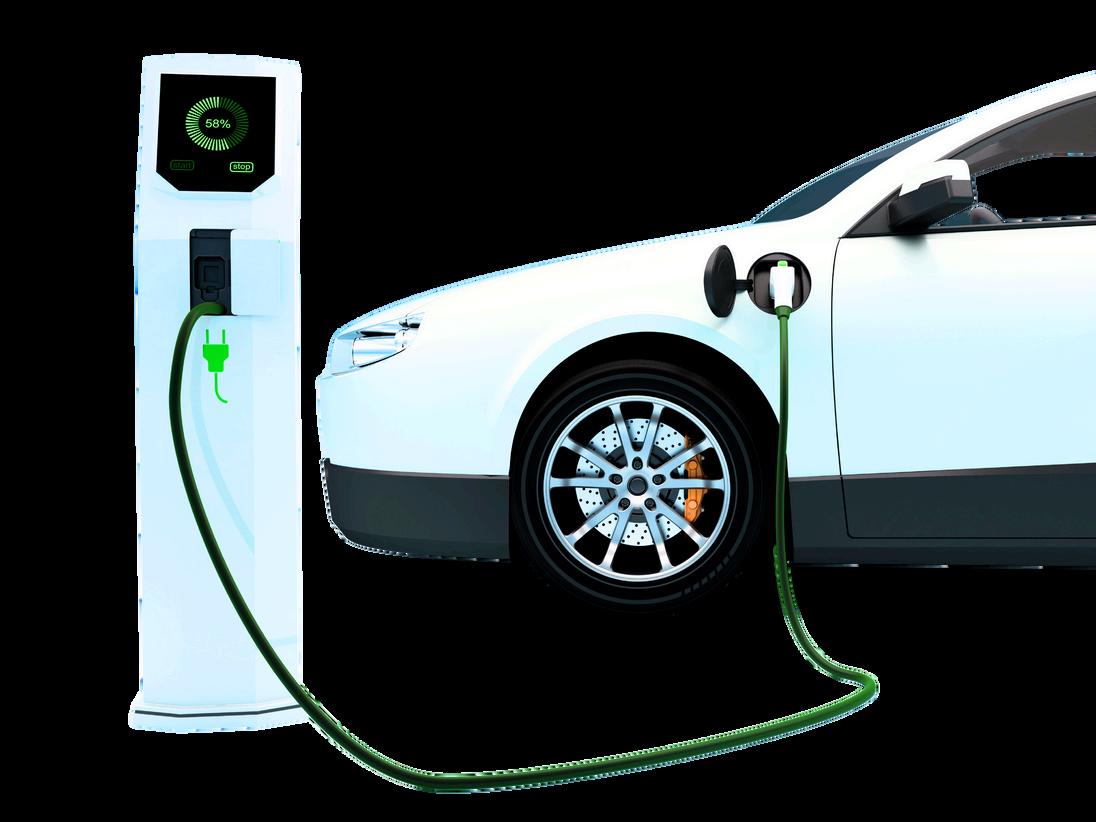


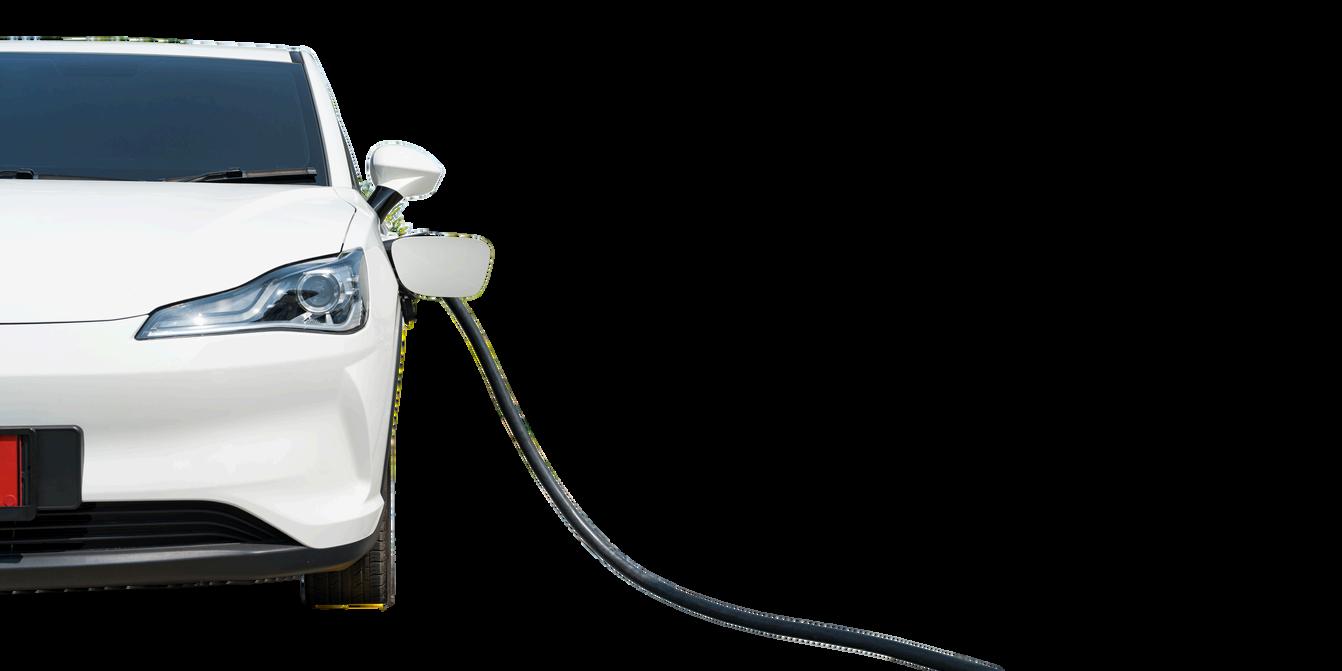
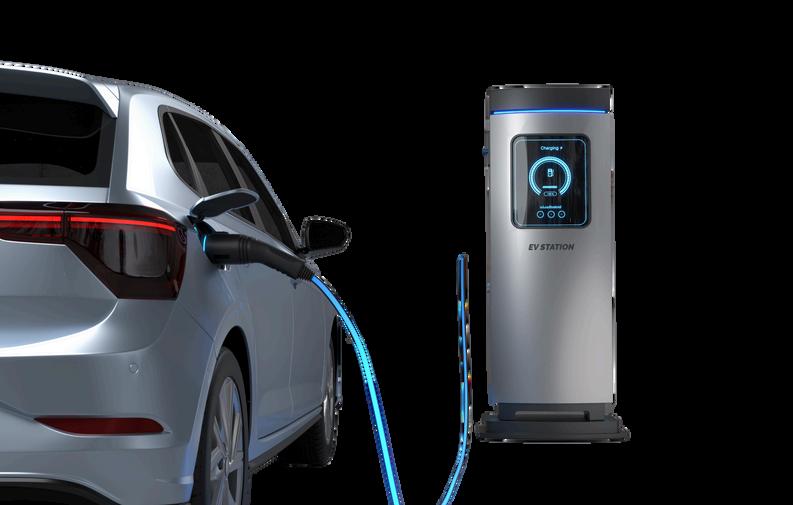
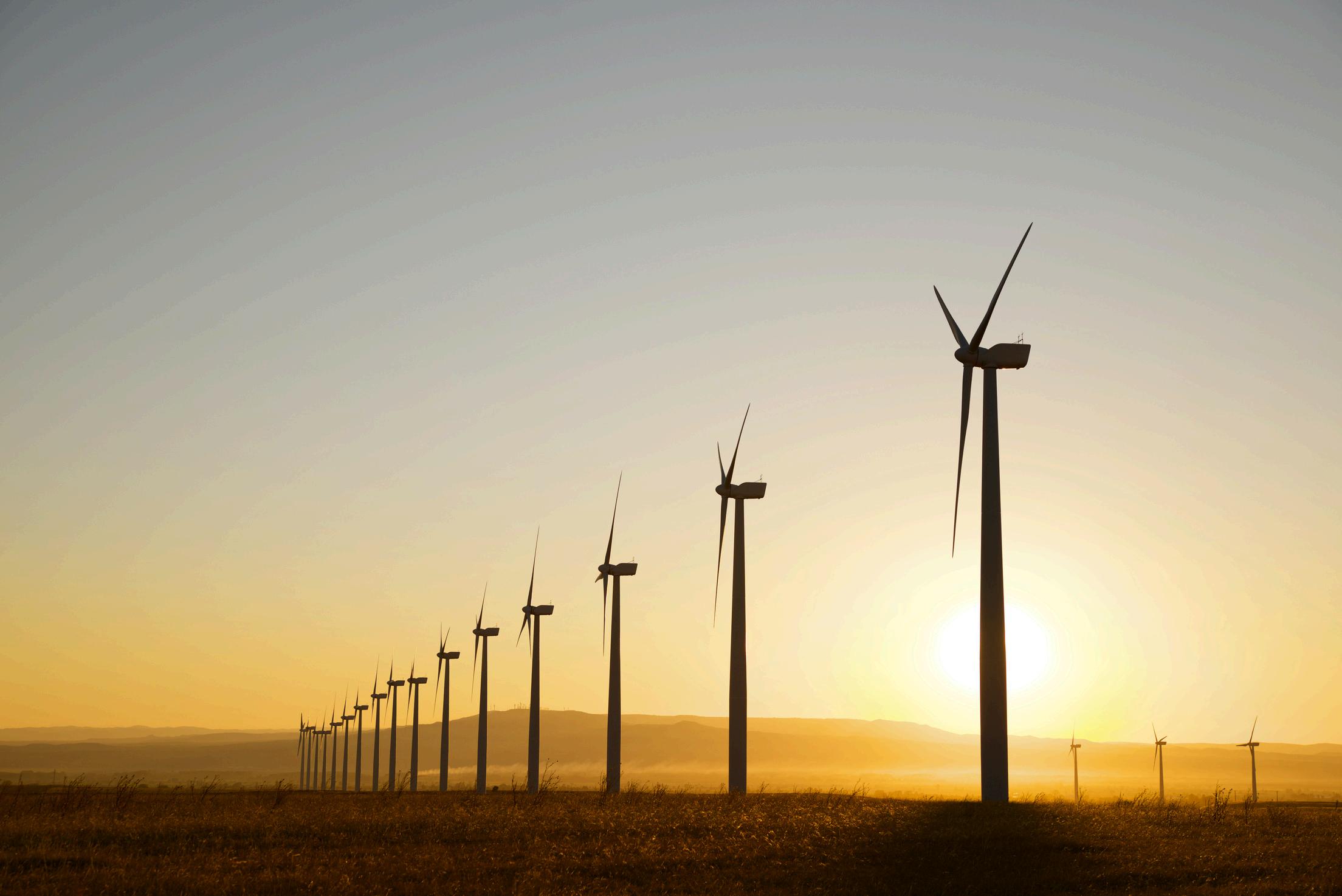
The Indian government has been playing a pivotal role in driving the transition towards electric vehicles (EVs) as part of the country’s commitment to reducing carbon emissions and achieving sustainable mobility. Over the years, various policies have been introduced to promote EV adoption, and these efforts have been further accelerated with the government’s focus on addressing environmental concerns and enhancing energy security
The Faster Adoption and Manufacturing of Hybrid and Electric Vehicles (FAME) scheme, launched by the Ministry of Heavy Industries and Public Enterprises, has been one of the key policy drivers The scheme, which is being implemented in phases, provides financial incentives to both consumers and manufacturers of EVs. Under FAME II, which was launched in 2019, the government has set aside ₹10,000 crore for the promotion of EVs and charging infrastructure This funding aims to support the adoption of electric two-wheelers, three-wheelers, buses, and cars FAME II also focuses on enhancing the charging network across the country, making EVs more accessible to consumers, and helping overcome the range anxiety that has often deterred potential buyers
In addition to FAME, the National Electric Mobility Mission Plan (NEMMP) 2020 has been a significant step towards the long-term development of the EV sector in India. NEMMP outlines the vision for India’s EV landscape, targeting an ambitious goal of having an electric vehicle fleet of 30% by 2030 The policy aims to increase the production of EVs in the country, reduce dependence on fossil fuels, and curb air pollution Through this plan, the government has focused on developing a strong manufacturing ecosystem and ensuring the availability of affordable EVs for the mass market
One of the latest policy developments in the EV transition is the Production-Linked Incentive (PLI) scheme for the automotive sector Introduced in 2021, this scheme is designed to boost domestic manufacturing and make India a global hub for EV production The PLI offers financial incentives to companies that meet certain production and sales targets, ensuring that electric vehicles are

produced at a competitive price and are easily available for consumers This move is expected to reduce India’s dependence on imported electric vehicles and batteries, while also creating jobs and encouraging innovation in the EV sector.
The government has also been focusing on developing a robust charging infrastructure for EVs, as the availability of charging stations is a key factor influencing the adoption of electric vehicles The Bureau of Energy Efficiency (BEE) has been working on setting up standards and guidelines for public charging infrastructure States like Delhi, Maharashtra, and Tamil Nadu have already started taking steps to provide incentives and subsidies for setting up EV charging stations, while the government has also allowed the private sector to enter the charging space.
In addition to the national policies, many state governments have also introduced their own EV policies to further encourage adoption For instance, Delhi’s EV policy offers subsidies for the purchase of electric vehicles and sets targets for the installation of charging infrastructure. States like Gujarat, Maharashtra, and Uttar Pradesh have similar initiatives aimed at making EVs more accessible to the masses
The government’s role in promoting EVs extends beyond policymaking to financing and incentives. The establishment of green energy funds and the provision of low-interest loans to EV manufacturers and buyers have encouraged private investment in the sector Moreover, the introduction of tax breaks and exemptions from road taxes for EV owners is further promoting the growth of the EV market
The Indian government’s policies have been instrumental in shaping the future of the electric vehicle industry With a combination of financial incentives, manufacturing support, infrastructure development, and regulatory frameworks, the government is creating an enabling environment for the widespread adoption of EVs. As the policy landscape continues to evolve, it is expected that India will be well on its way to achieving its goals for sustainable mobility and reducing its carbon footprint in the years to come.

JBM Group leads India's EV transition with an integrated "Well-to-Wheel" approach for sustainable public transport
With 1,800+ electric buses deployed, it operates the world’s largest EV bus plant outside China
Committed to Net Zero 2040, JBM integrates renewable energy and smart manufacturing for sustainability
What inspired JBM Group’s entry into electric mobility, and how does it align with India’s sustainable transport goals?
Our commitment to electric mobility stems from a deep responsibility towards our planet and future generations Recognizing India's growing demand for sustainable transportation, we are dedicated to advancing clean mobility solutions that revolutionize public transport nationwide. By prioritizing passenger comfort, safety, affordability, and innovation, we aim to set new industry standards Our initiatives focus on encouraging widespread adoption of public transport over personal vehicles, reducing carbon emissions and contributing to India's broader environmental goals Aligned with India's Net Zero Mission 2070, our efforts support the country's transition to a low-carbon economy, accelerating the shift towards a greener, more sustainable future
How do you view India’s EV landscape, and what are the key opportunities and challenges for adoption?
As a key player in the EV industry, we recognize India's rapidly evolving electric mobility landscape, driven by strong government support, increasing consumer awareness, and growing industry interest Significant opportunities exist across multiple segments, including passenger vehicles, twowheelers, buses, and commercial fleets, all contributing to reducing emissions and promoting sustainable transportation
However, challenges persist, such as high upfront costs, limited charging infrastructure, range anxiety, and battery production supply

chain constraints Overcoming these barriers requires a multi-faceted approach involving strategic policy interventions, technological advancements, and large-scale infrastructure development In the latest Union budget 2025, the government has tried addressing some of the core issues including duty exemptions on EV battery production and eliminating import duties on critical minerals These measures align seamlessly with the Prime Minister’s EDrive scheme, fostering an environment conducive to the expansion of green mobility and reinforcing India’s mission to enhance cell and battery manufacturing capabilities
What drove JBM Group’s integrated approach to EV manufacturing and infrastructure, and how does it offer a competitive edge?
JBM's integrated strategy in electric mobility is driven by a commitment to sustainability, operational efficiency, and addressing critical challenges in EV adoption Recognizing the industry's evolving demands and India's ambitious Net Zero Mission 2070, we developed the intelligent 'Well-to-Wheel' EV ecosystem JBM E-Verse which integrates electric vehicles, battery technology, charging infrastructure, and power electronics
This holistic approach stems from our vision to provide comprehensive, end-to-end solutions rather than isolated products By manufacturing electric buses and building the supporting charging infrastructure, we ensure compatibility, enhanced performance, and long-term reliability This vertical integration allows us to maintain high-quality standards across the entire value chain while mitigating common industry challenges such as range anxiety, inadequate charging networks, and supply chain constraints
Our integrated model creates a competitive edge by offering tailored solutions that address specific market needs. Unlike fragmented approaches relying on multiple third-party vendors, JBM's ecosystem ensures efficiency, cost-effectiveness, and optimized vehicle performance This strategic alignment strengthens our market position, accelerates EV adoption, and reinforces JBM Group's leadership in driving future-ready, clean mobility solutions.
What inspired JBM Group’s entry into electric mobility, and how does it align with India’s sustainable transport goals?
At JBM Group, technology and innovation drive our electric mobility solutions We push the boundaries of EV technology to enhance performance, reliability, and user experience Our latest advancements focus on improving battery efficiency, vehicle intelligence, and passenger comfort, setting new industry benchmarks
Our key innovations include integrating highperformance lithium-ion batteries with an advanced thermal management system, enhancing safety, longevity, and efficiency Our modular battery packs suit diverse operational needs, optimizing performance across different routes Ultra-fast charging technology significantly reduces downtime, improving fleet efficiency
To maximize energy efficiency, our vehicles feature best-in-class power consumption per kilometer and a regenerative braking system, extending range by converting braking energy into usable power. Our permanent magnet synchronous motor delivers high torque and power, ensuring smooth, energyefficient performance
We leverage smart technology to elevate vehicle intelligence Our Battery Management System (BMS) and Vehicle Control Unit (VCU) logic continuously monitor battery health, energy consumption, and driver behaviour, enabling real-time optimizations that enhance safety and reliability. These technologies improve vehicle health and contribute to lower maintenance costs, ensuring a best-inclass Total Cost of Ownership (TCO)
Prioritizing passenger experience, we integrate intuitive user interfaces and enhanced accessibility features for all commuters' comfort and convenience Our electric buses deliver unmatched safety, superior comfort, and environmental sustainability, reinforcing our commitment to building a cleaner, smarter, and more efficient public transport ecosystem
Through these cutting-edge innovations, JBM Group continues to lead the EV revolution, driving sustainable mobility solutions that align with India's clean energy goals
How is JBM Group contributing to India’s transition to electric buses, and what key milestones have been achieved?
India's public transportation landscape is undergoing a significant transformation with the rapid adoption of electric buses, and JBM Group is at the forefront of this evolution. Our commitment to sustainable mobility is reflected in our efforts to deploy electric buses across major cities, working closely with state governments and municipal corporations to reduce air pollution and traffic congestion
A key milestone in our journey has been the successful deployment of over 1,800 electric buses across India, Europe, the Middle East, and Africa In India, we have played a pivotal role in electrifying public transport in cities like Delhi, Bengaluru, Surat, and Ahmedabad amongst others, ensuring cleaner and more efficient urban mobility To support this expansion, we have developed a comprehensive charging infrastructure ecosystem, reinforcing the reliability and accessibility of electric buses
JBM Group has made significant strides in scaling up EV production, establishing the world's largest dedicated integrated electric bus manufacturing facility outside China, located in the Delhi-NCR region This state-ofthe-art plant boasts an annual production capacity of 20,000 electric buses, positioning us to meet the growing demand for sustainable transport solutions Our robust order book of over 10,000 electric buses, deployed or under execution, further underscores our leadership in the sector

Beyond urban transit, we are also a market leader in tarmac buses, holding over 90% market share, reinforcing our expertise in specialized electric mobility solutions With a clear vision for the future, JBM Group remains focused on scaling EV adoption, expanding charging infrastructure, and making electric buses the standard mode of public transport in urban India Our efforts align with the country's broader sustainability goals, driving India towards a cleaner, greener, and more efficient transportation ecosystem.
This year JBM Auto has successfully completed a decade in the public mobility space We envision serving over 20 billion passengers and clocking 3 billion e-kilometres in the next 3-4 years, delivering safe, reliable and unforgettable experiences
How does JBM Group embed sustainability into its manufacturing and operations for a greener future?
Sustainability is a cornerstone of JBM Group's vision, driving our efforts to create a cleaner, greener, and more efficient mobility ecosystem Our commitment extends beyond manufacturing electric vehicles it is embedded in our entire value chain, from green manufacturing processes to renewable energy integration and strategic partnerships that support long-term environmental goals
Sustainable Manufacturing Practices
At JBM, we adopt energy-efficient and resource-conscious manufacturing processes to minimize environmental impact Our state-ofthe-art facilities leverage solar power, smart automation, and resource-efficient technologies, ensuring optimal energy utilization while reducing waste We prioritize advanced lightweight materials, enhancing vehicle efficiency and reducing the overall carbon footprint of our products
Renewable Energy and Green Infrastructure
To accelerate decarbonization, JBM has partnered with Singapore-based Keppel Ltd to develop integrated solutions in e-mobility, EV charging, and renewable energy. This collaboration strengthens our ability to build sustainable urban infrastructure, reinforcing our role in India's transition to green mobility.
Commitment to Net Zero and Global Sustainability Goals
JBM Group has set an ambitious Net Zero 2040 commitment, aligning with the United Nations' Sustainable Development Goals (SDGs):
SDG #3 (Good Health & Well-being): Reducing vehicular emissions to improve air quality and public health.
SDG #9 (Industry, Innovation & Infrastructure): Investing in cutting-edge EV technology and smart manufacturing to promote industrial sustainability
SDG #11 (Sustainable Cities & Communities): Supporting eco-friendly urban mobility through electric buses and EV charging solutions
SDG #13 (Climate Action): Combating climate change by integrating renewable energy and expanding EV adoption
Through these initiatives, JBM Group ensures that sustainability is not just a goal but a core principle, shaping the future of manufacturing, transportation, and energy solutions By embedding sustainability into our operations, we are pioneering a cleaner, more resilient future while setting industry benchmarks for environmental responsibility
How does JBM Group embed sustainability into its manufacturing and operations for a greener future?
The EV industry offers vast opportunities, but long-term success demands innovation, strategic planning, and sustainability:
Prioritize Long-Term Value:
Focus on sustainable, scalable solutions, investing in R&D for improved efficiency and affordability
Understand Policies & Regulations:
Leverage government incentives like FAME II and PLI schemes to boost growth
Expand Charging & Energy
Infrastructure:
Invest in fast charging, battery swapping, and renewable energy integration to enhance accessibility
Form Strategic Partnerships:
Collaborate with OEMs, battery manufacturers, and tech firms to build an integrated EV ecosystem
Leverage Smart Mobility Technologies:
Utilize AI, IoT, and big data for enhanced vehicle diagnostics, fleet management, and customer experience
Strengthen Supply Chains & Local
Manufacturing:
Reduce import dependence by investing in localized production and battery recycling
Stay Agile & Continuously Innovate:
Adapt swiftly to market trends, evolving technologies, and customer expectations
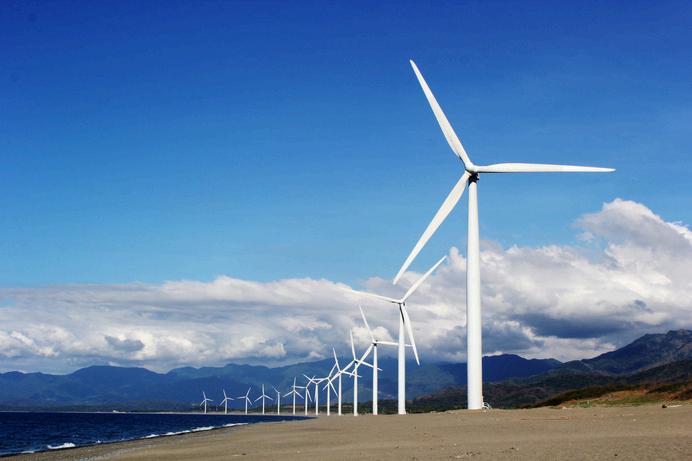

Numeros Motors, a Bangalore-based OEM specializing in indigenous electric vehicles, launched its flagship model, Diplos Max, designed to meet the evolving needs of urban commuters With a sharp focus on practicality, innovation, and performance, the company continues to strengthen its position in the fast-growing electric mobility sector. The product embodies a seamless blend of reliability, safety, and durability, making it ideal for all customer needs
Diplos Max is a well-thought-through product keeping in mind the practicality of usage that can range from daily commute to addressing the needs for a host of professional applications, offering a versatile solution for multipurpose use The Diplos Max offers a practical IDC range of 140 kilometers and a top speed of 63 kmph; the scooter ensures optimal efficiency Its parallel charging capability further minimizes downtime, fully recharging the battery in just 3-4 hours, making it a practical choice for users who demand uninterrupted mobility
The design of Diplos Max prioritizes rider comfort and durability It features the largest seat in its segment, providing enhanced comfort for extended rides Safety being a key focus, Diplos Max incorporates dual disc brakes for superior braking performance, ensuring quick and controlled stops The scooter is also equipped with high-performance LED lighting for optimal visibility, and wider tires that offer excellent grip across diverse terrains, offering increased stability on Indian roads, whether in congested urban areas or slightly rougher suburban patches
With Diplos Max, we ’ ve redefined urban mobility combining practicality, performance, and innovation to meet the evolving needs of modern commuters.”
The e-scooter also offers three distinct riding modes Eco, Normal, and Reverse allowing users to adapt their ride based on different conditions, optimizing both speed and battery life as required
Available in three striking colors Crimson Red, Sonic Silver, and Cosmos Blue Diplos Max represents a bold step forward in electric mobility. With its robust build, smart technology, and efficient performance, this ‘made in India’ scooter is built for real-world challenges that truly "Gets It Done"
Numeros Motors is committed to making sustainable transportation more accessible across India. Currently operational in 14 cities, the company is aggressively expanding its dealership and service network, aiming to onboard 170 dealers by the end of FY 2025-26 With a state-of-the-art manufacturing facility in Narasapura and over 13 9 million kilometers of real-world testing completed, the brand is setting new benchmarks in reliability and performance within the EV sector







E-Mobility+ publications, distributed pan-India, sets a new standard in EMobiliy+ energy media. With over 200+ and a growing list of advertisers, we work with who's who in the industry across our platforms from print magazines to social media platforms put their brands first and ensure the best delivery of the marketing needs.

Ensures best delivery of the marketing needs
Customizable Product Layout
Highest Circulation & Readership Well Researched Editorial Content
Most read by Key Decision Makers

TOP EV TWO WHEELER SALES IN INDIA, DECEMBER 2024 TOP EV THREE WHEELER SALES IN INDIA, DECEMBER 2024



